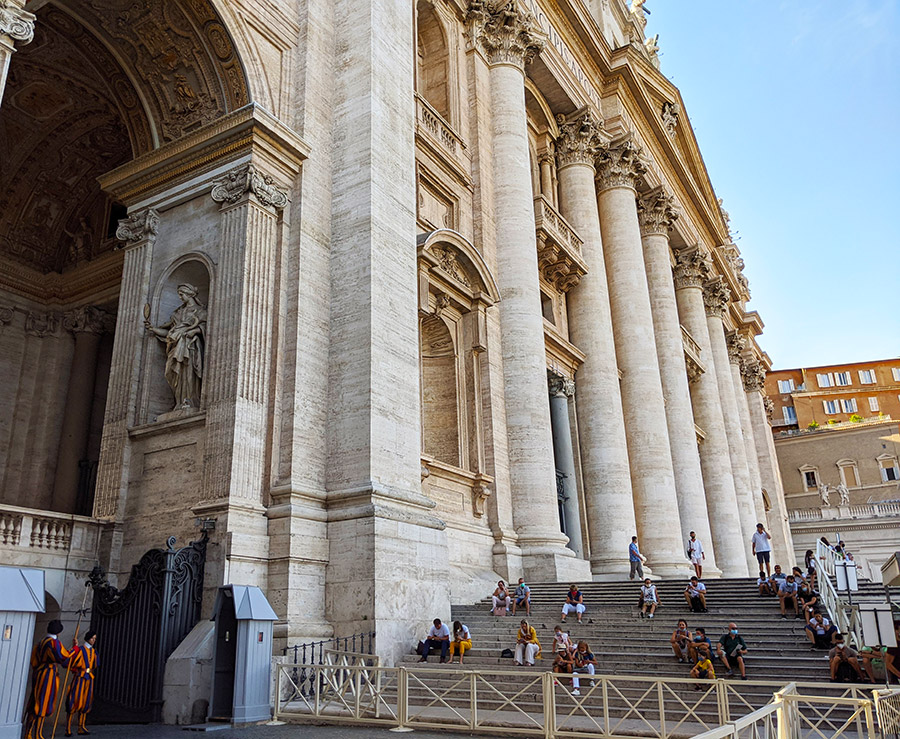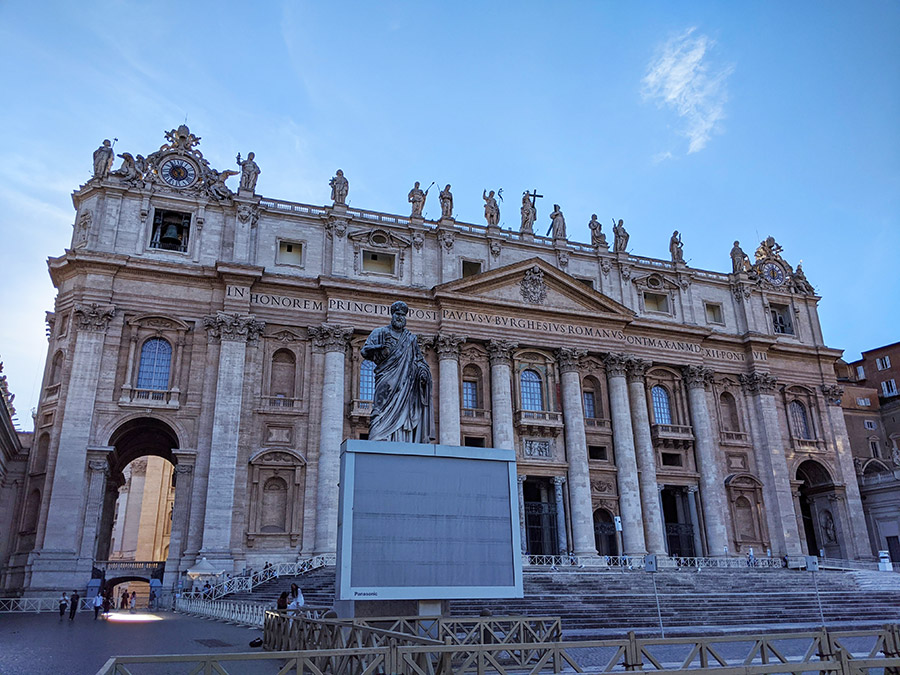


Vatican City is the smallest country in the world, at 0.17 square miles. That means you could fit over 38 million Vatican Cities inside Russia, the world’s largest country. Wait that can’t be right- Look, that’s what math says. I didn’t make this world, I just like to imagine 38 million Popes wrestling bears and pretending it’s not cold out when, dude, it’s wicked cold outside you big weirdo.
So, why is eeeety beeeeety Vatican City even a country? Well, from a historical perspective the question is really more how did the Papal States get so small? The Pope used to control all of central Italy. Following the fall of the Roman Empire, Italy was a bit of a mess, with different foreign groups invading and taking over different parts of the peninsula. The Pope used his armies to secure central Italy, which became the Papal States around the year 800. This lasted a thousand years, until the Italian unification wars in the second half of the 1800s. The Kingdom of Sardinia defeated all the Italian states ruled by France and Austria and unified basically all of present-day Italy under the new Kingdom of Italy. A conflict remained between Italy and the Pope, who wasn’t thrilled with losing all his shwag, which was resolved when the Lateran Treaty in 1929 established Vatican City as an independent state.
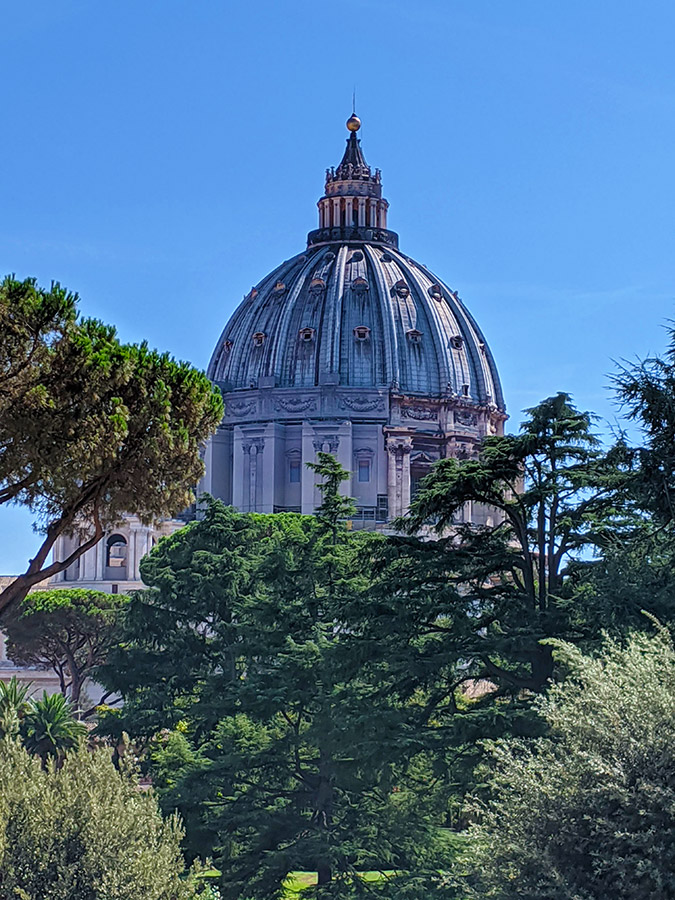
One of the things I found really fascinating traveling around Europe and learning more about their history than we’re taught in school, was that I had always thought of all the European countries as being extremely old, while the United States was this fresh-faced newcomer with no history. And while there’s some truth to that from some perspectives, I was surprised to learn that several of the big countries in Europe are actually younger than the United States, if we’re talking about political entities with more or less the same borders we know now. Italy didn’t become unified until 1871, Belgium was a part of the Netherlands that broke away in 1830, and Finland didn’t become independent from Russia until 1917, for a few examples. Obviously there were civilizations and culture in these places long before those dates, but there were also Native American civilizations in North America going pretty far back, which we ignore when we pretend that history started when white people showed up.
I was also fascinated by the tendency we have to think of however things are right now as the “normal” and right state of things. That the countries we have now make sense and are how the world should be organized, all the craziness that came before was just people working all that out. But European history is a complete mess, the two World Wars were less anomalies than they were larger scale versions of the kinds of things that had been going on there for thousands of years. In a sense, the relative stability we’ve had for the last 70+ years has been the anomaly.
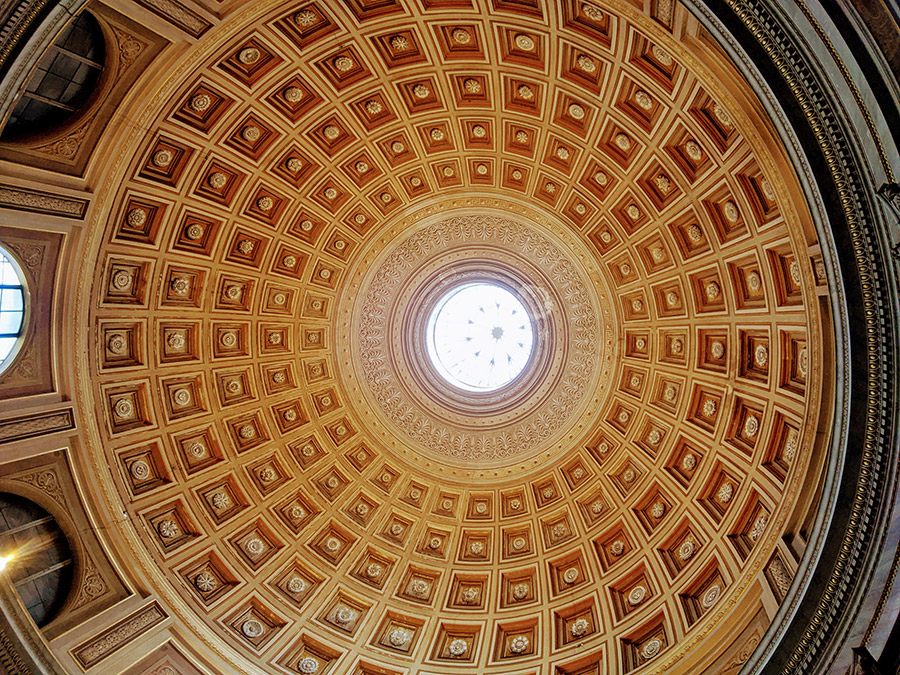
Vatican City holds a special distinction for people who are trying to visit every country in the world. It’s not hard to get to, at all, since it’s right there in Rome and you can just take the metro on over. But every country-collector has their own personal rules about what constitutes a visit to a country, and many of them hold to the rule that you have to spend the night in a country for it to count. Vatican City doesn’t have any hotels, so you can’t really spend the night there in the normal sense. Less than a thousand people live in Vatican City and they’re all clergy and the Swiss Guard who police the state. And the Vatican closes to visitors at 11pm.
So travel obsessives end up doing crazy shit like dodging the Swiss Guard and sleeping hobo-style in the Vatican Gardens or hidden up in some scaffolding in order to meet this requirement. Some sleep on the ground right outside the outer security fence, since the Vatican’s territory technically extends a few feet beyond this fence. Thankfully my only rule is that you have to breathe the air of the country (airports don’t count), so I didn’t have to resort to any of this craziness and got to go back to my hotel in Rome at night. Which is probably less interesting from a blogging perspective, but there you go. Go ahead and sleep on the street for your blog and I’ll read it.
So, what is there to do in Vatican City? Basically three things. You want to see the Vatican Museums, the Sistine Chapel, and St Peter’s Basilica. I mean if you’re a weirdo you can book a tour of the Vatican Gardens and get driven around in a tram, but this wasn’t available when I was there and so therefore it’s not important and not worth your time. You want to focus on the big three.
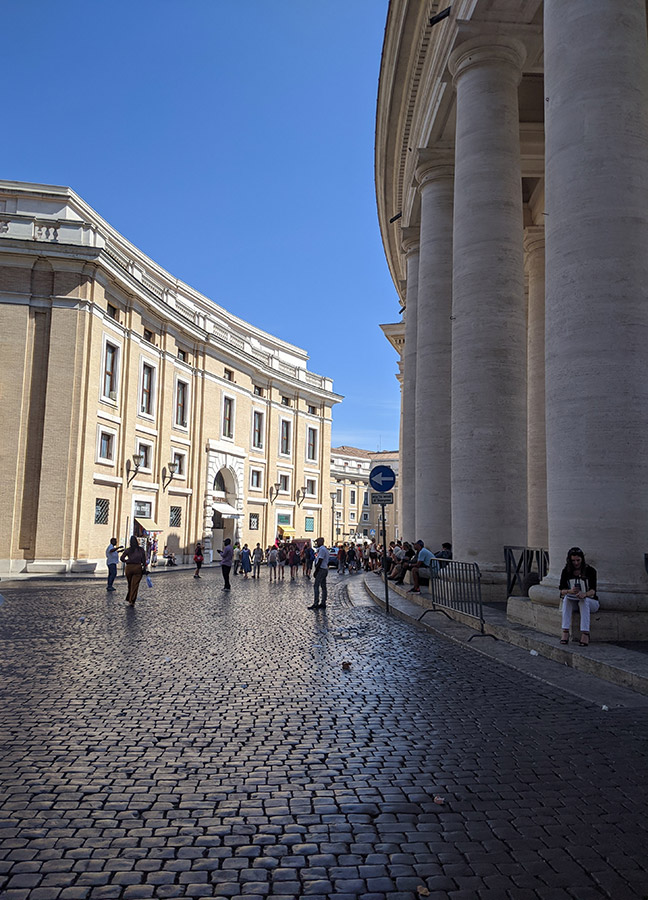
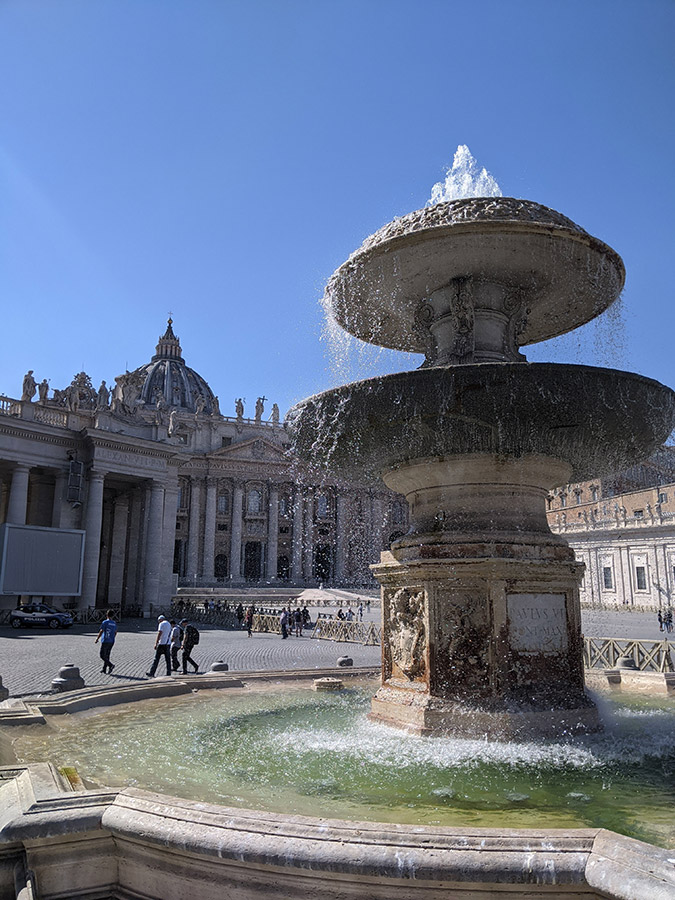
You really need to see St Peter’s. This is what every Christian church in the world aspires to be. I’ve been inside a lot of great churches and mosques around the world, but this one is just on its own planet. Hands-down, it is its own category. It’s the biggest Christian church in the world, yes, but it goes beyond that. I’m not Catholic and the building held no religious significance for me whatsoever, yet it still blew my mind purely on the basis of its aesthetic virtues. It’s mind-bending grandeur on a scale I’ve never seen anywhere else, in any other man-made structure.
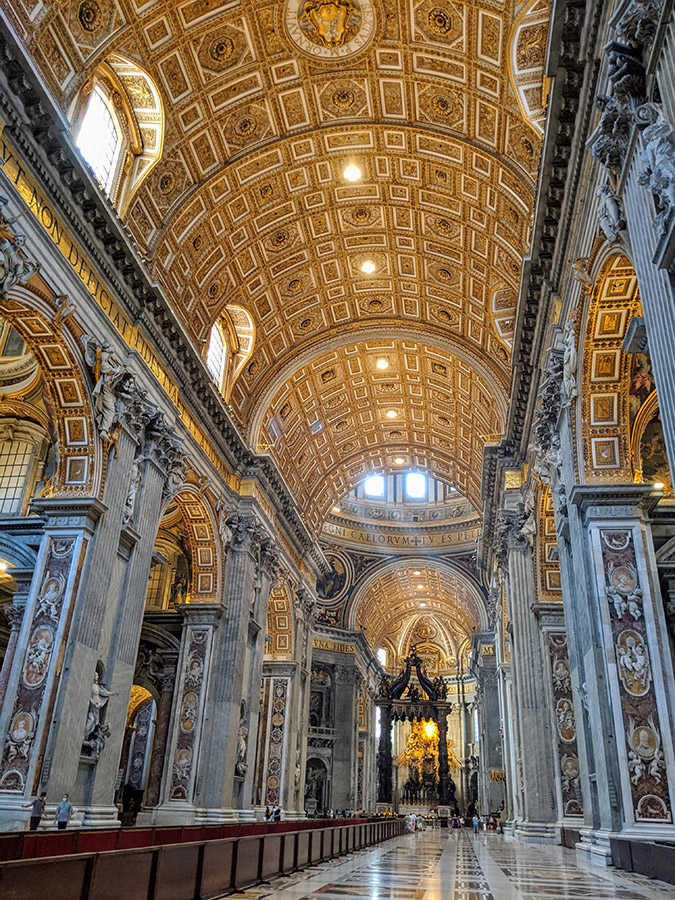
It kind of makes every other church look like shit, honestly.
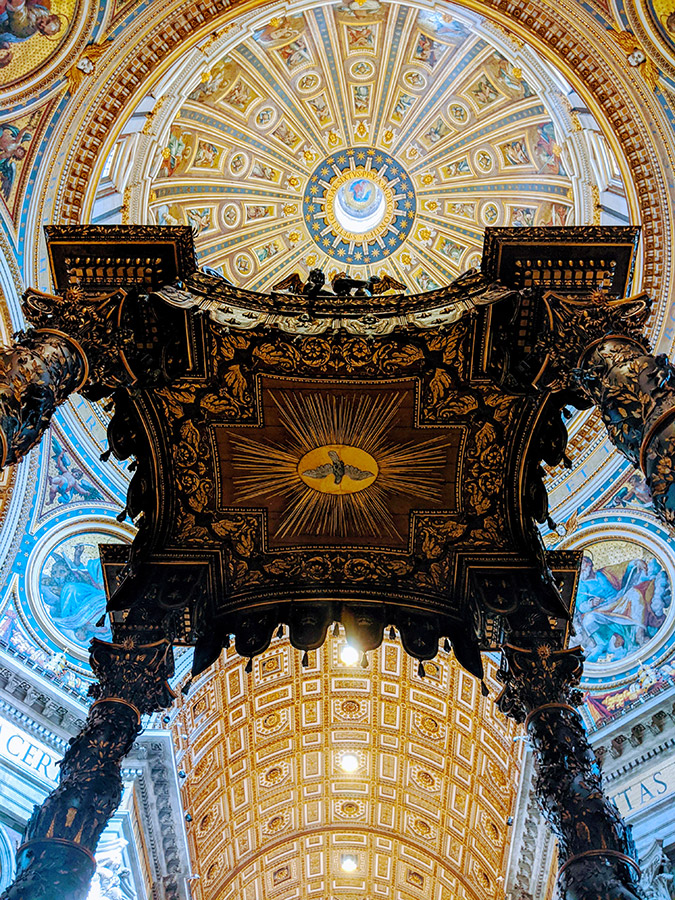
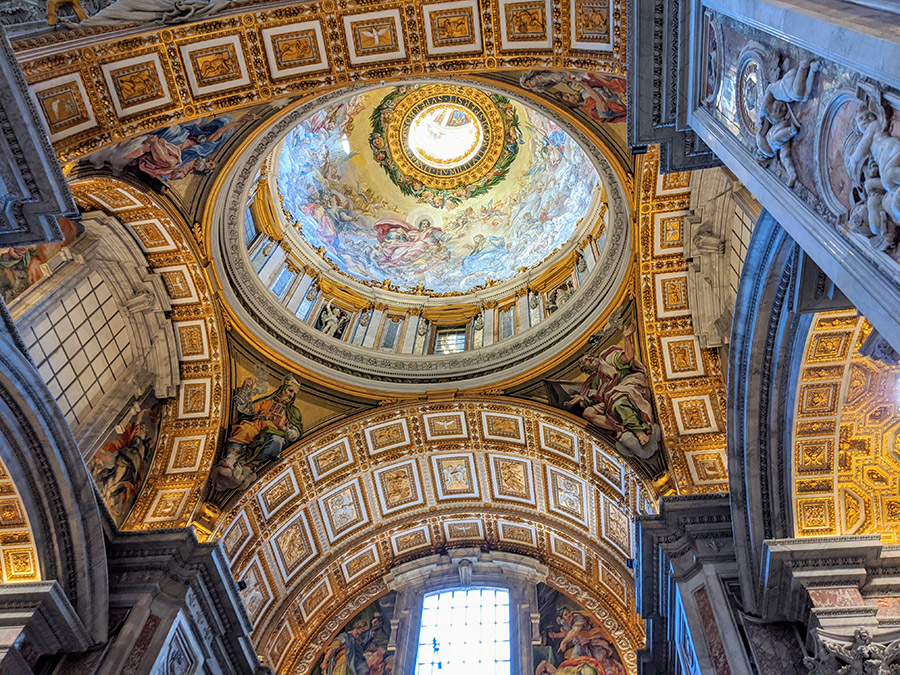
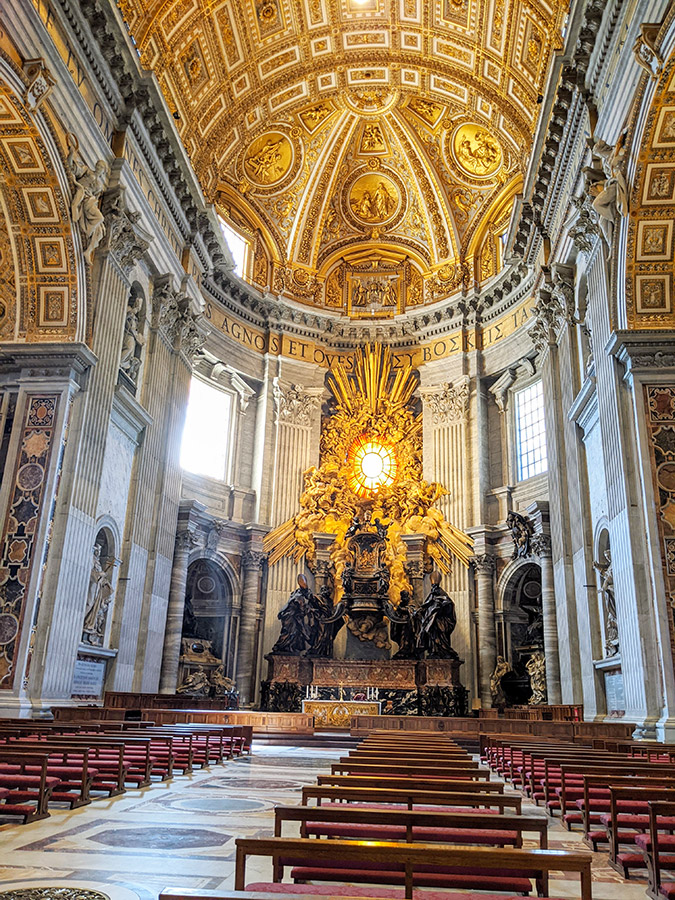
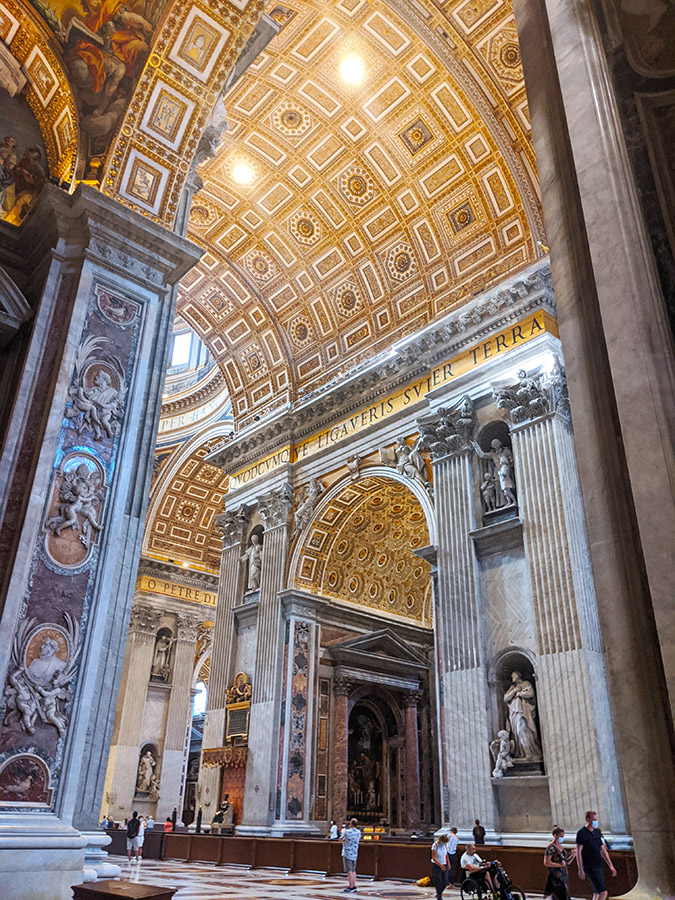
The thing that caught me off guard, after I was done being caught off guard by how awe-inspiring the church itself was, is how incredible all the statues inside were as well. The most famous is Michelangelo’s Pietà near the front entrance.
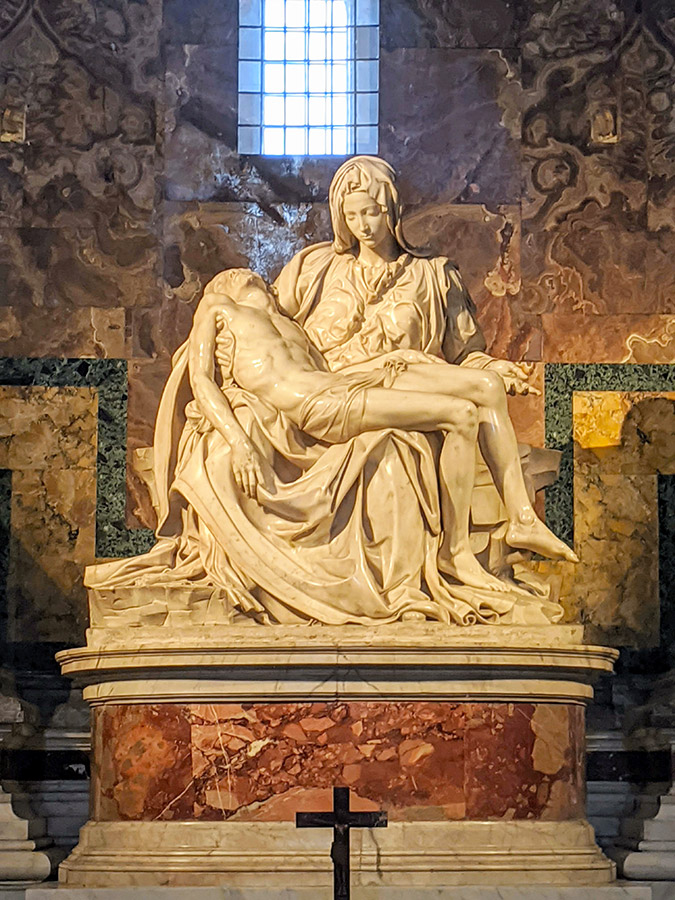
And rightly so. It really is breathtaking. One thing I learned on this trip is that Michelangelo’s sculptures have qualities that don’t quite come across in photographs, they have a life and an aura to them that you have to see in person to really experience. I first encountered this in Florence when I went to see his David, and the Pietà was no different. The look on Mary’s face as she holds her dead son in her arms is just heartbreaking.
But this wasn’t even my favorite sculpture in the church. That was the statue of St Veronica by Francesco Mochi in the crossing of the Basilica.
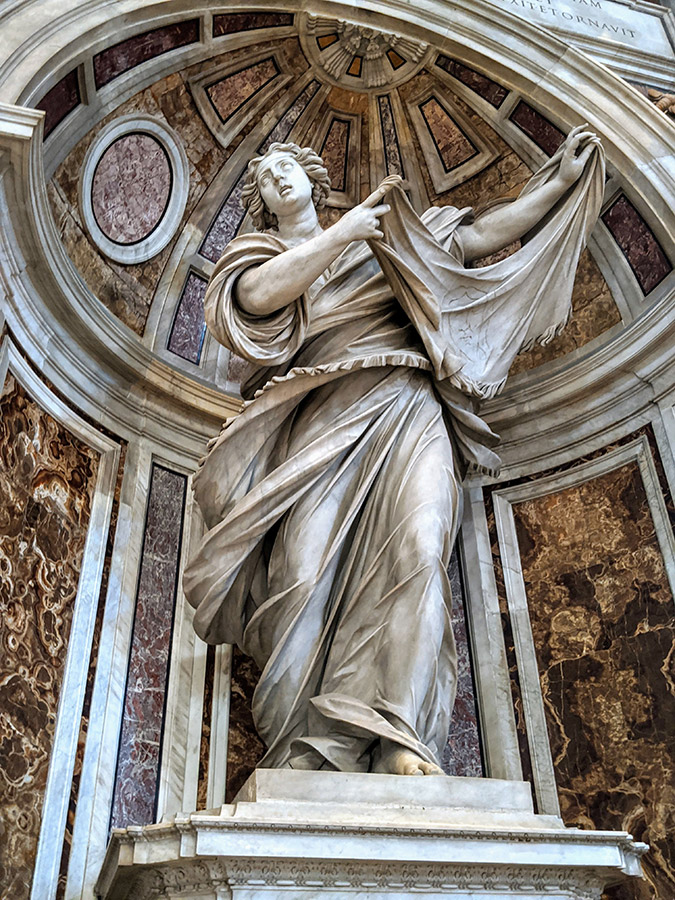
Veronica was a poor woman who had been healed by Jesus, and she encountered him again when he was carrying the cross on the day of his crucifixion. Christ fell in the street, and Veronica took off her veil and wiped his face with it, discovering later that Christ’s visage had transferred onto the veil. A veil with a bearded dude on it was brought back from the Crusades and is kept in a gallery above this statute.
I honestly didn’t care about any of that, but this statue! The fluidity and delicacy of the fabric of the veil and her clothing was just mind-boggling. It was hard to believe this was solid marble. You could see the tone of her muscle through the fabric of her dress in a way that felt hallucinatory. I knew, intellectually, that I was seeing a single piece of marble carved into this shape, but my eyes were telling me I was seeing thin cloth pulled over skin, muscle and bone.
This statue was quite controversial when it was installed, as it was deemed to have “excessive motion” inappropriate to the decorum of the church. Mochi was heavily criticized. I think we too often fall back upon the “people in the past were stupid” explanation for things, but in this case, people in the past were stupid. You’re a goddamned wizard, Mochi, and they were right to name a Japanese dessert after you.
Looking at this statue I found myself marveling that human beings could take an artform this far. Artists are called masters all the time, but this truly seemed like mastery of an element to me, bending it to your will. Primitive people seeing this could have reached no conclusion other than that this woman had been frozen in stone by some kind of spell. Hell, it’s 2020 and I’m still not 100% sure that isn’t what happened.
The other statues at the crossing were also quite impressive, though marred slightly by their lack of excessive motion.
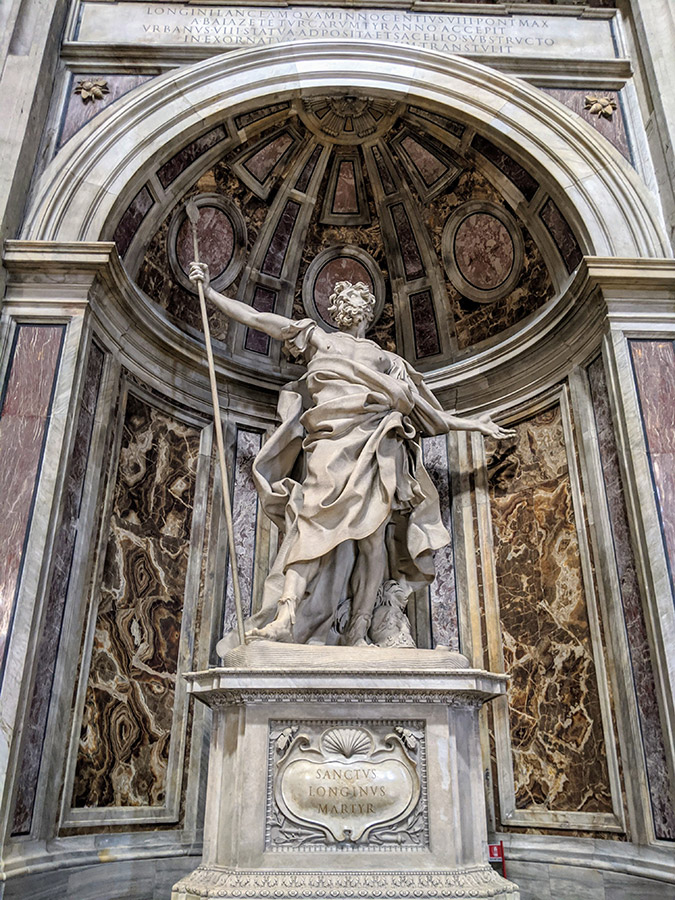
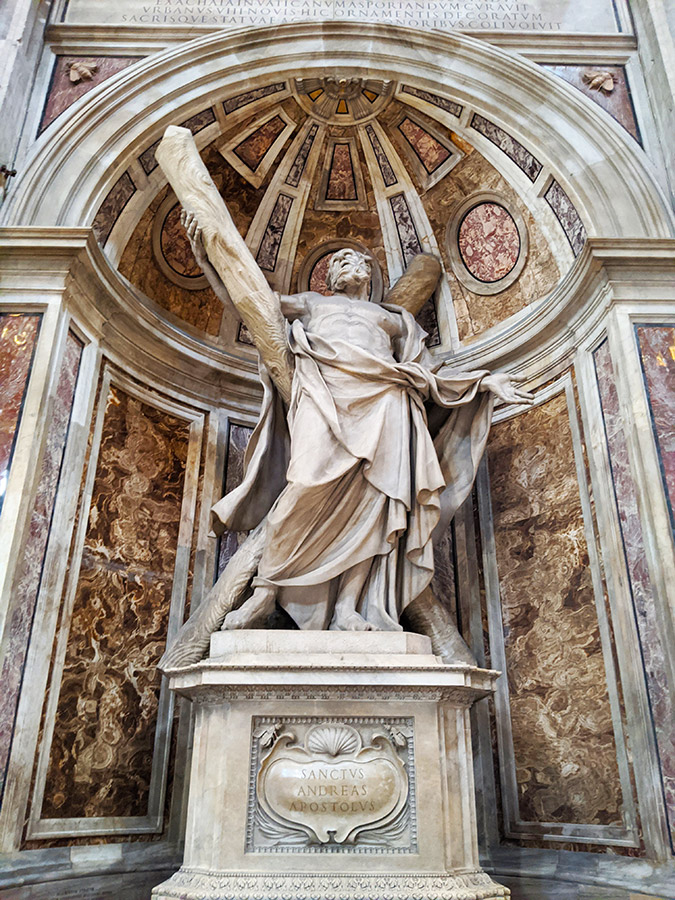
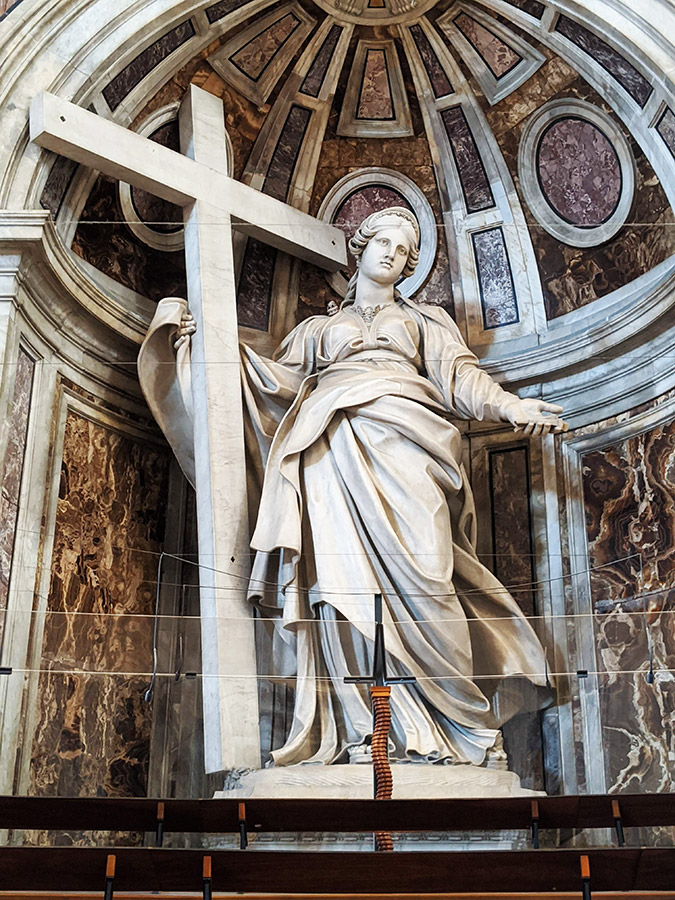
I wandered the church in a daze, taking in all the everything.
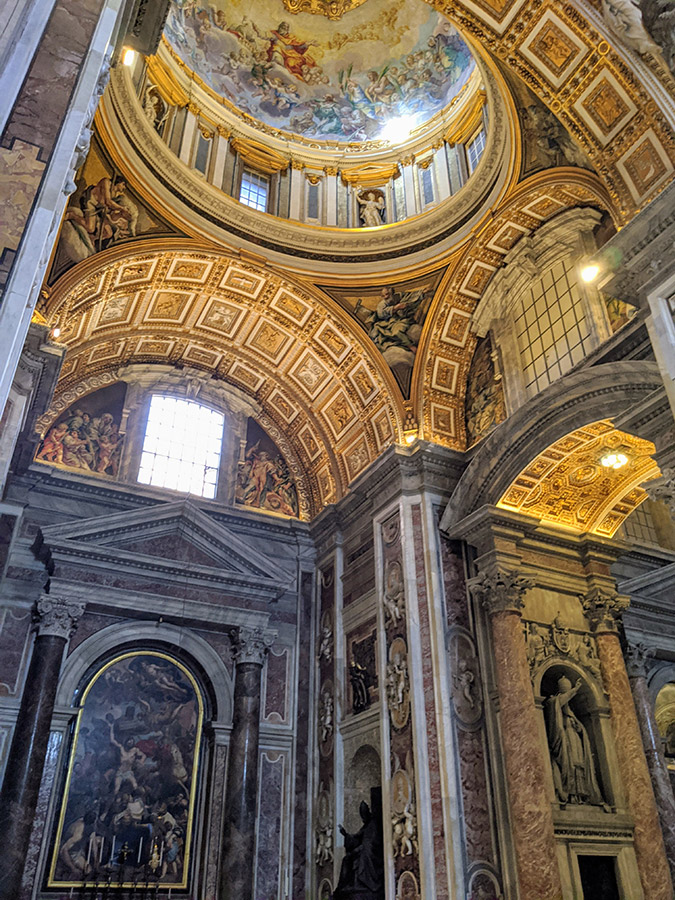
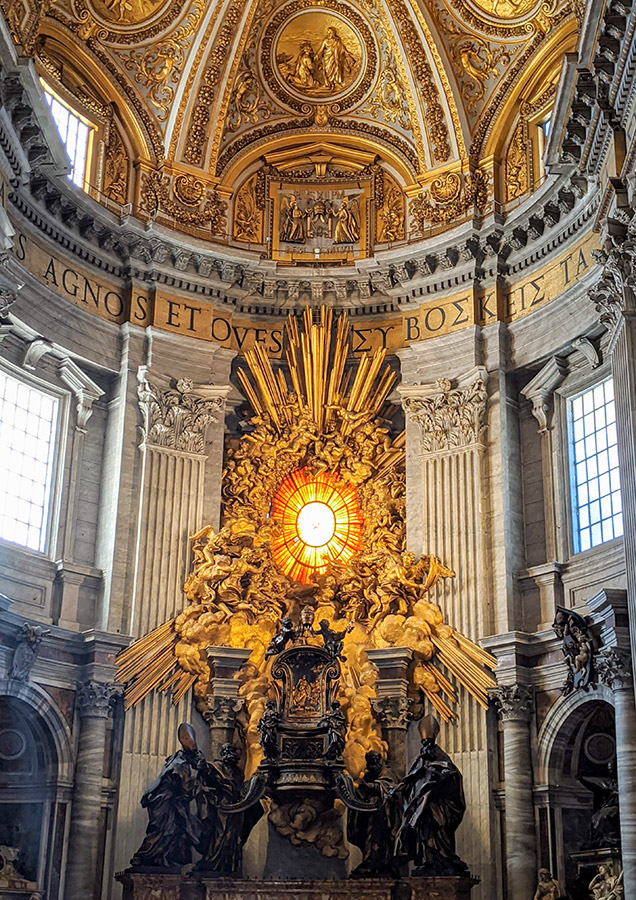
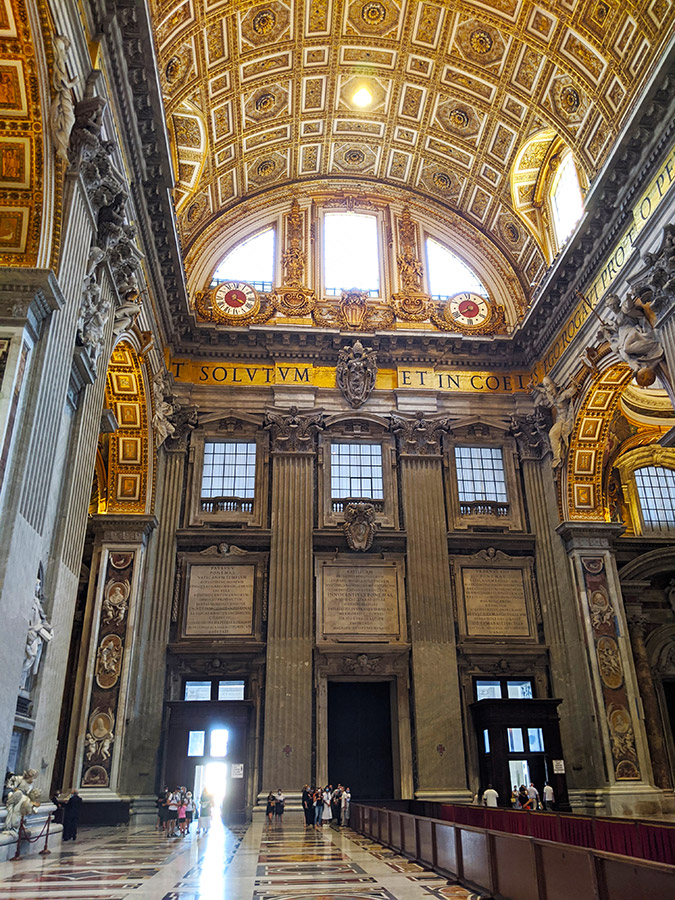
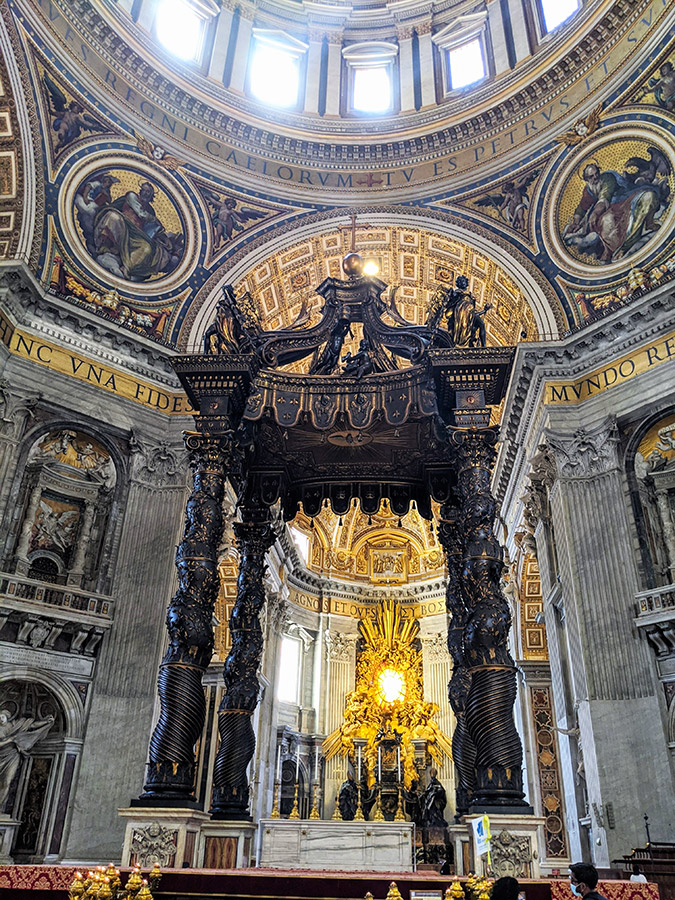
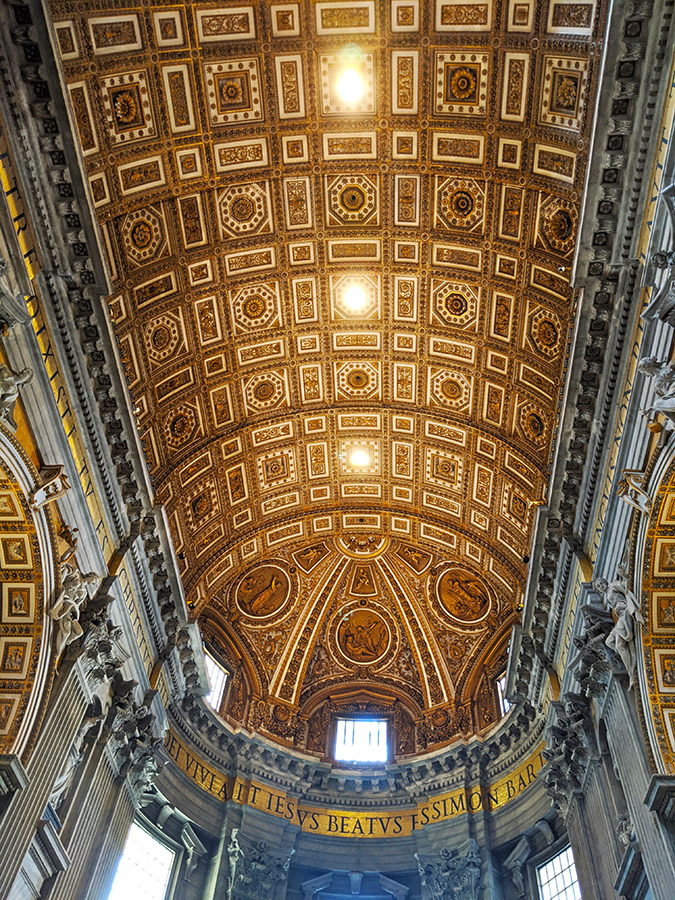
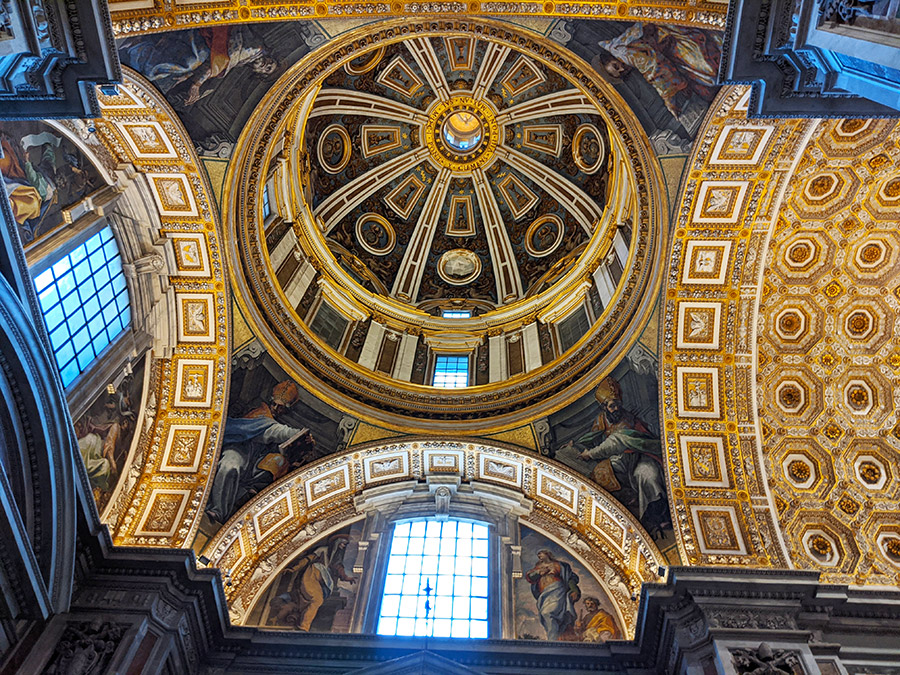
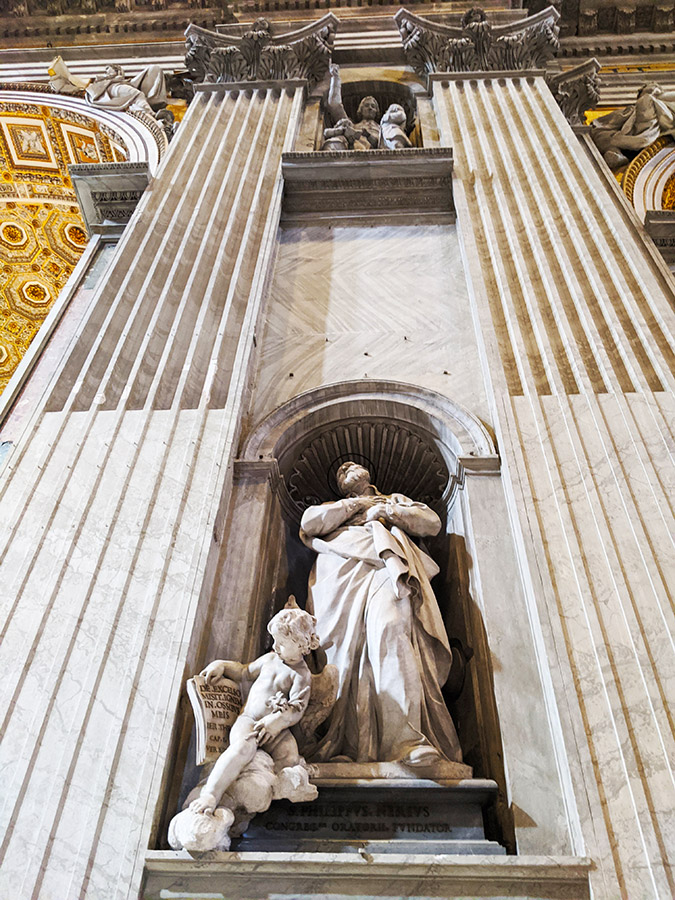
Several of the walls contained huge mosaics of famous painting, like this recreation of Raphael’s Transfiguration, which I had just been admiring in the museum.
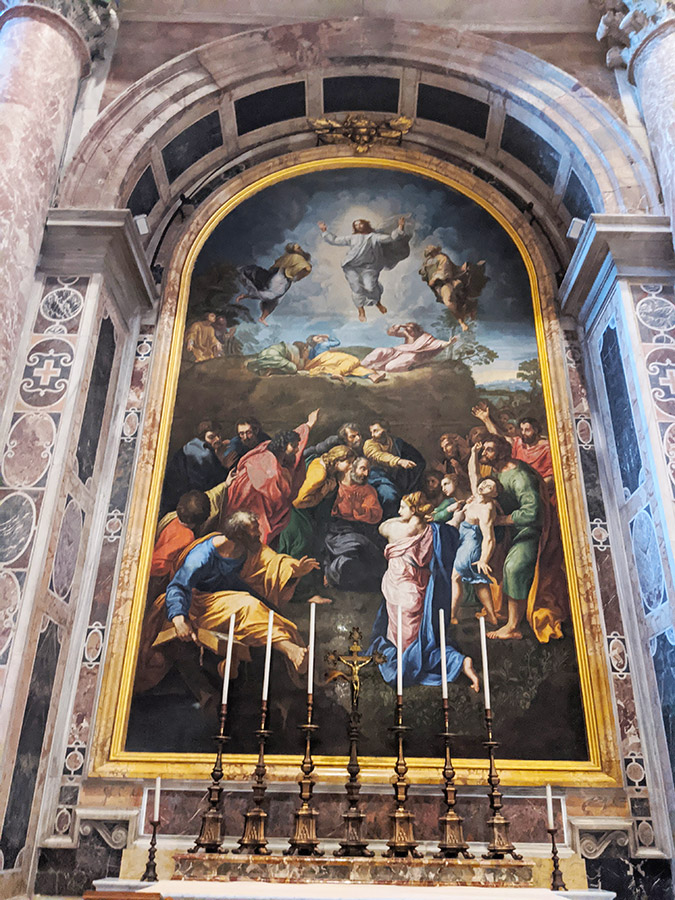
Other statues were tucked in various nooks and crannies, some of them quite high up by the ceiling. This super-intense guy staring down at us cracked me up. I love how his dog is like “Oh jeez, what now?”
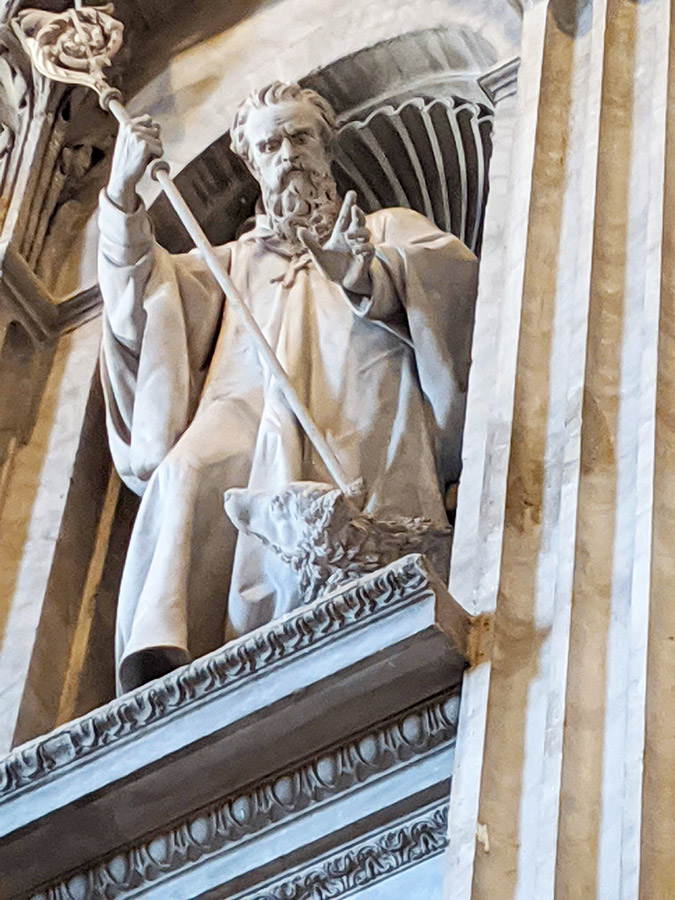
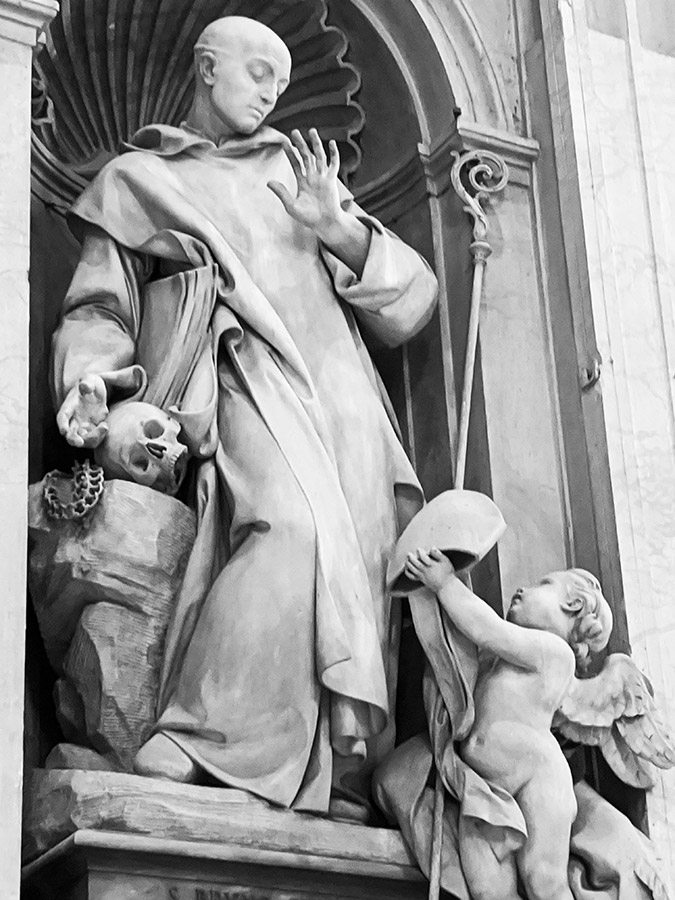
A directory posted in the back listed all the popes in history, in case you needed to call one of them.
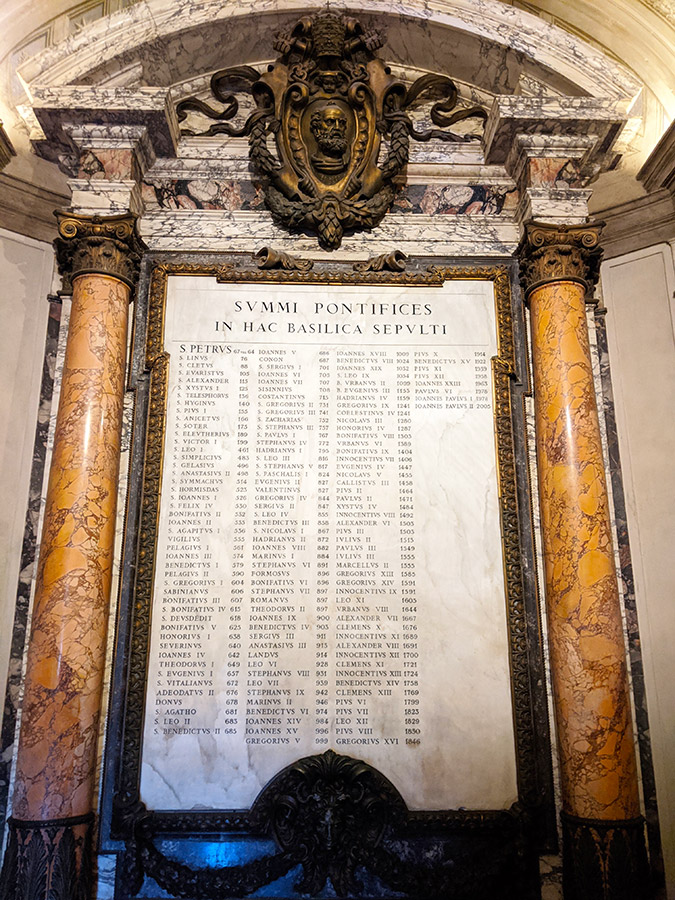
The other thing you can do at St Peter’s when you’re done gawking at all the everything, is to climb the dome! I was done gawking and this sounded right up my alley, so I bought my ticket and started up the stairs. The stairs started out innocently enough.
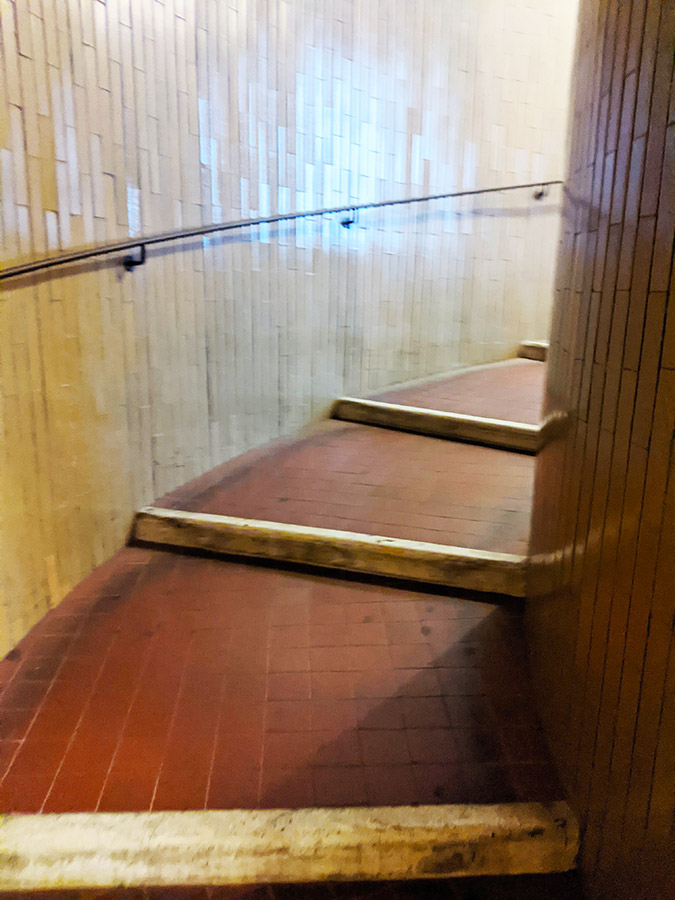
These led up to a balcony where you could view the floor of the church below…
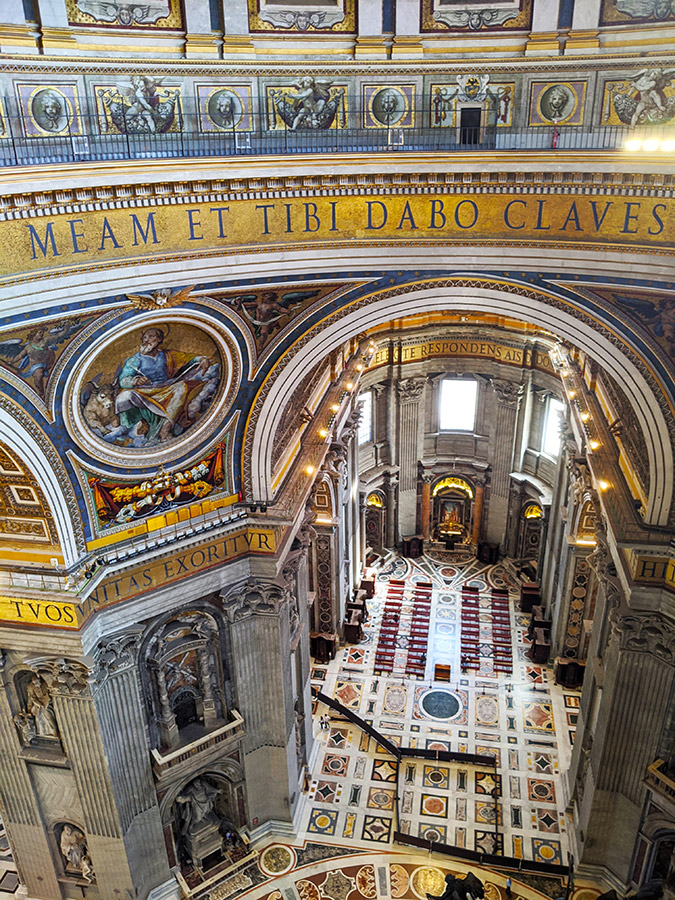
..and the ceiling up above.
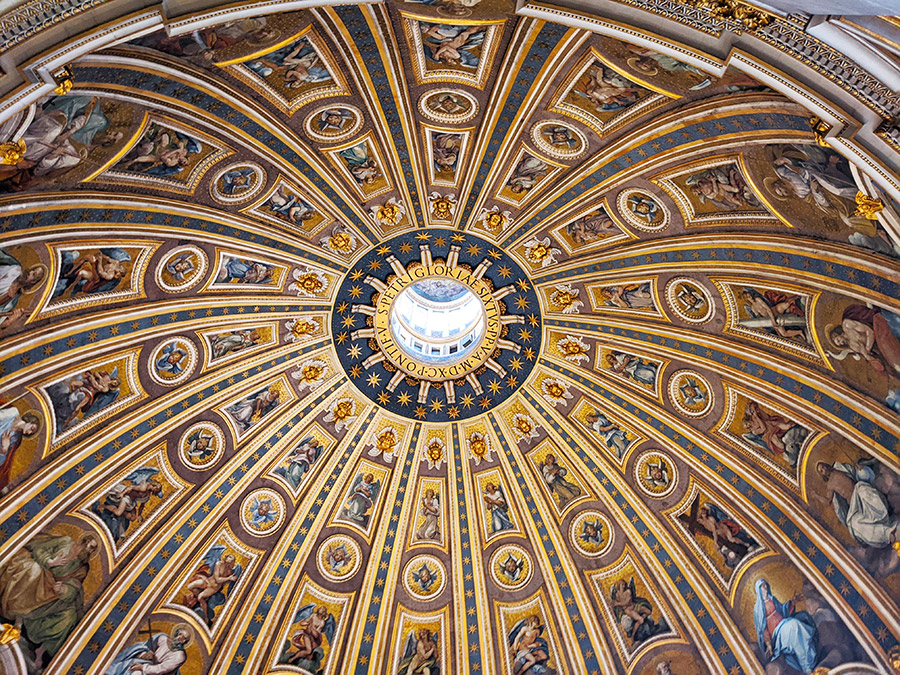
A stoned baby watched over us.
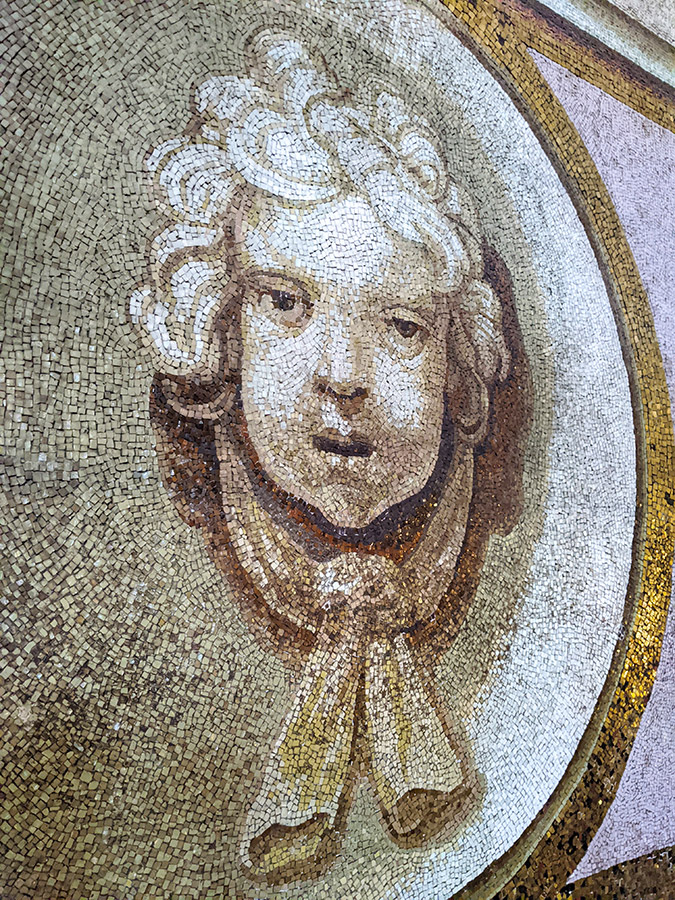
Cool. Time to go further up. Now the stairs were slightly more serious.
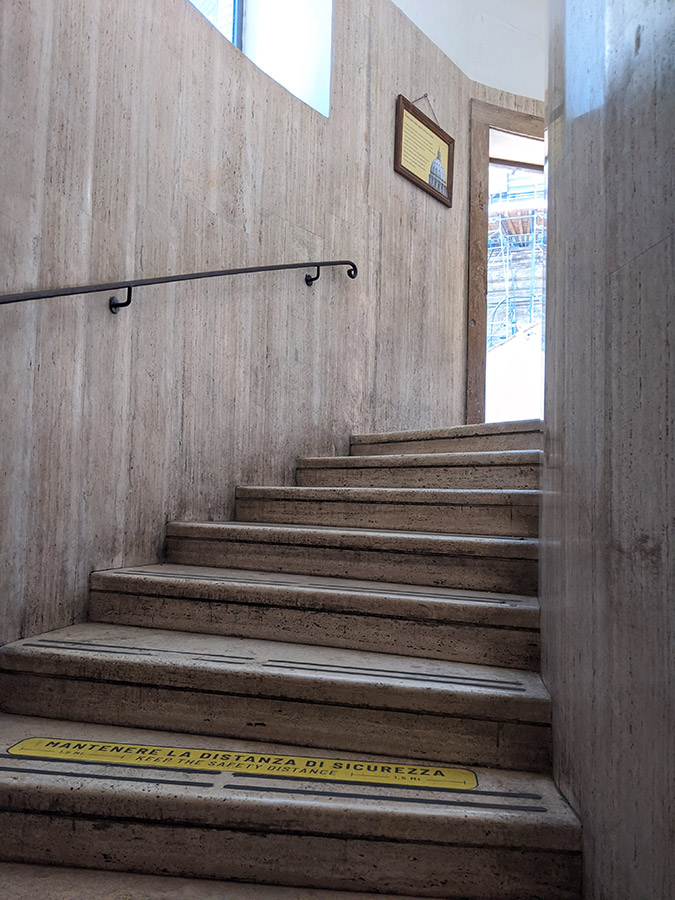
And then they got a little silly.
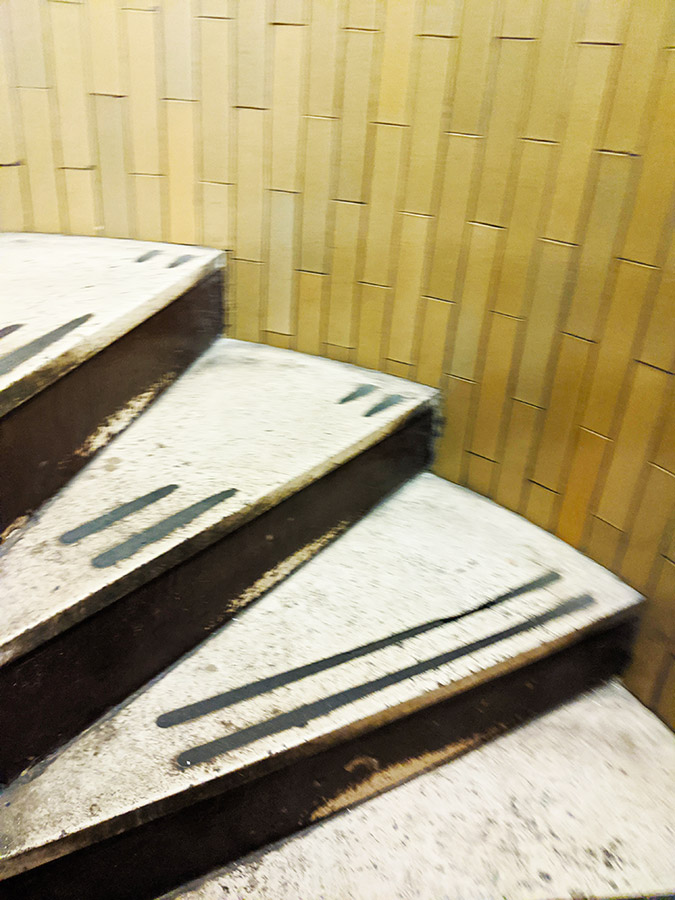
Now we were way up the dome, and reality started to break entirely. The hallways were like this.
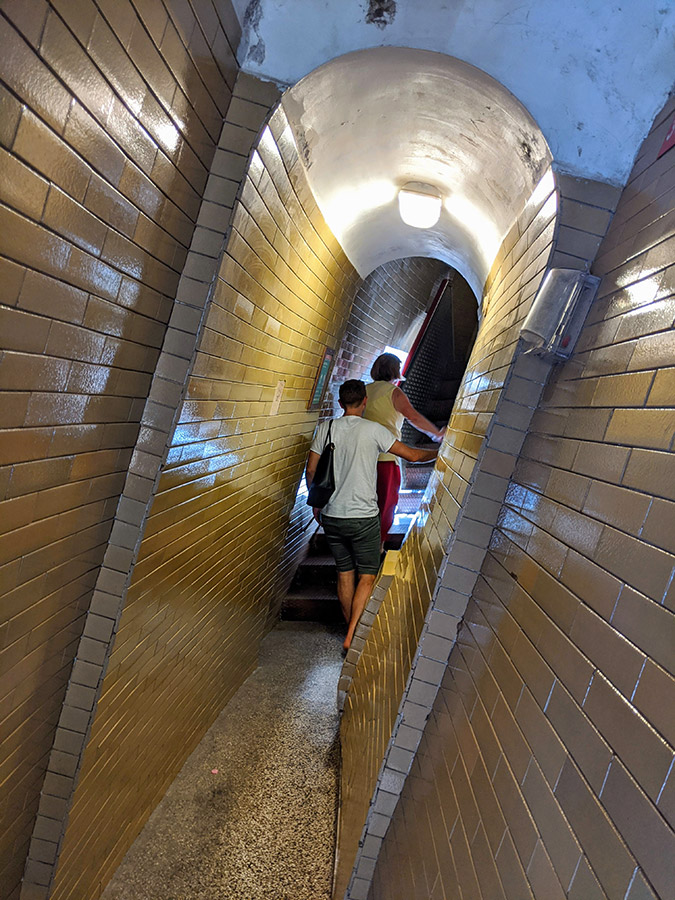
What the hell is going on? We’re actually in the curve of the dome now, trying to walk upright in a hallway that curves steeply to one side. This felt like being really, really drunk.
Then I came to the last set of stairs. You’ve got to be shitting me.
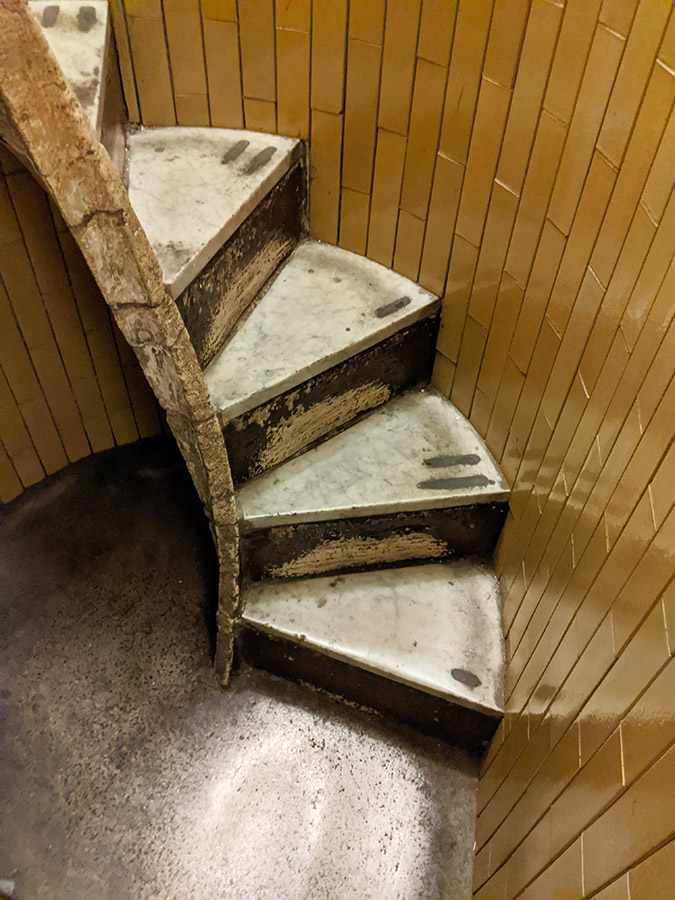
These tiny baby stairs just spiraled up madly, and I was palming the walls and trying not to fall through the folds in reality into another dimension. This is like being super drunk. After a very long time of this the stairs ran out and I was suddenly outside.
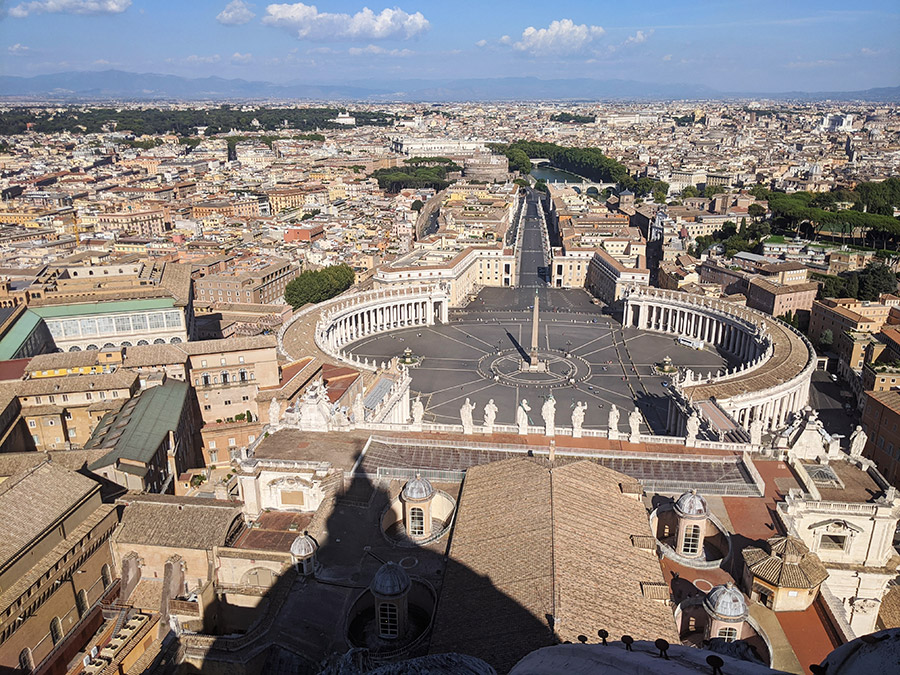
Cool. We were in sort of a cage that wrapped around the building, in case anyone had any ideas about meeting God early.
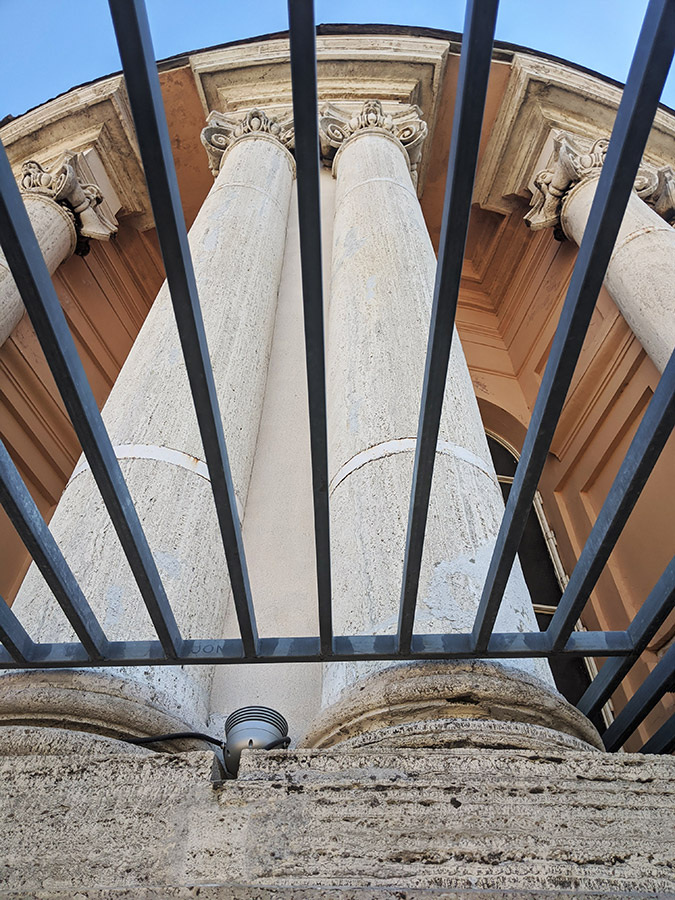
I looked at my phone. Oh crap! I have a meeting right now. I called in and tried to balance taking my mask off to give a Zoom presentation on camera with staying a safe covid distance away from the other tourists packed into this narrow little ledge way up on top of the world.
This worked out fairly well and a negligible number of Italians died. I made the rounds around the ledge and took in the view out across Vatican City and Rome beyond in every direction.
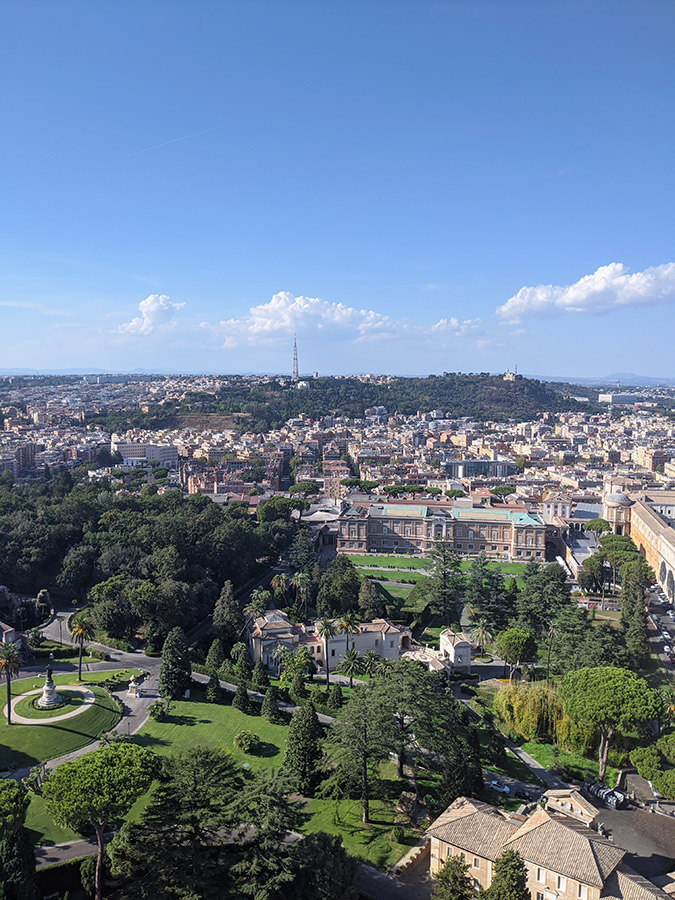
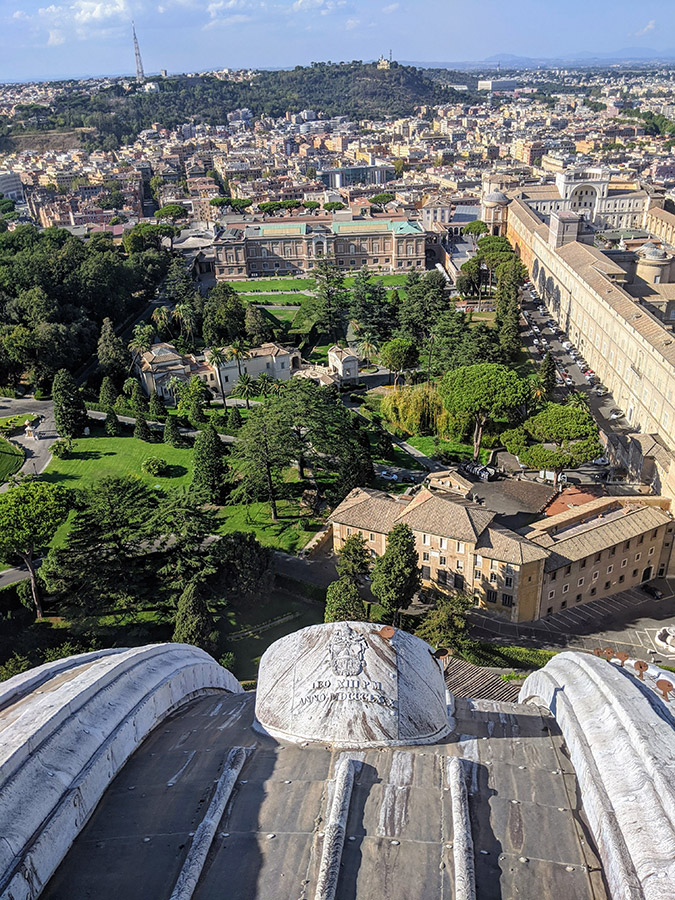
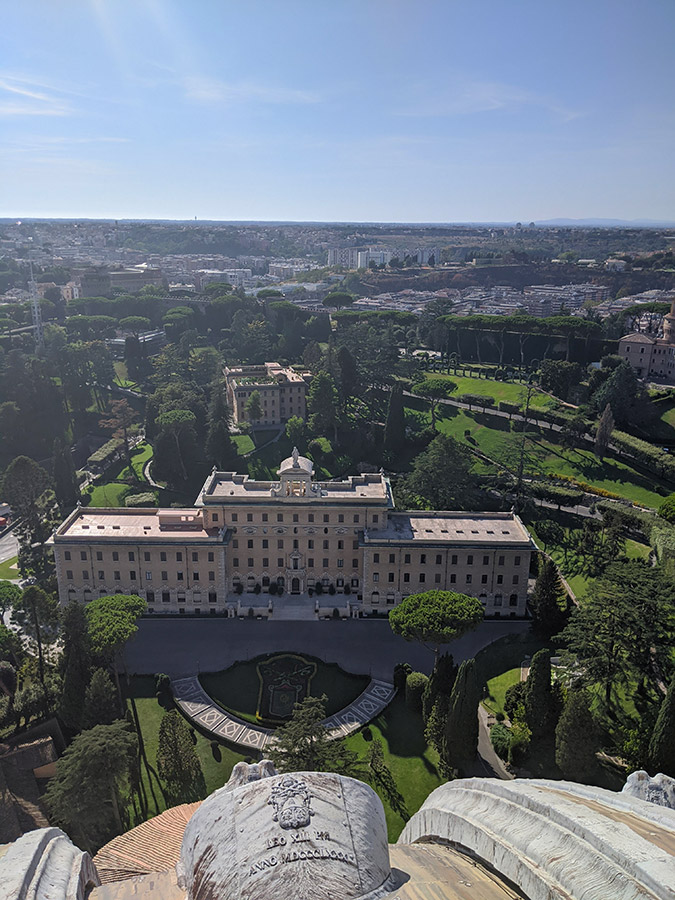
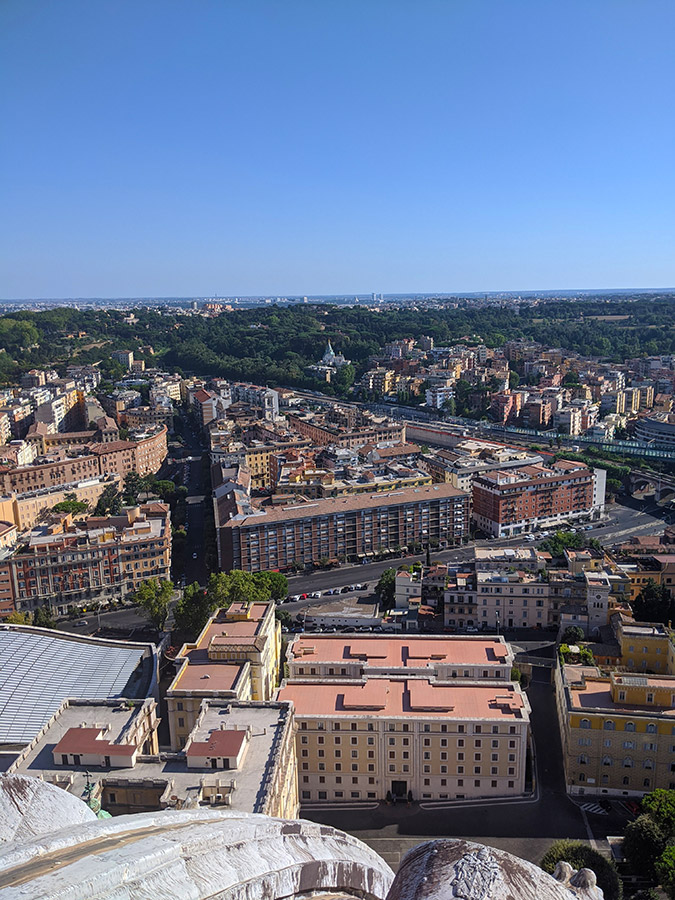
When it was time to go I spiraled my way down the wacky stairs, over and over and over until I finally reached the bottom and had to stand still for a minute so the room would stop spinning around me, as my brain had not fully caught up to the fact that we weren't spinning any more. From here you couldn’t go back exactly the way we’d come, so I exited out a side door and walked across the roof of the Basilica, which was lumpy and uneven, pitching in so many different directions that a drain was required to aid confused water.
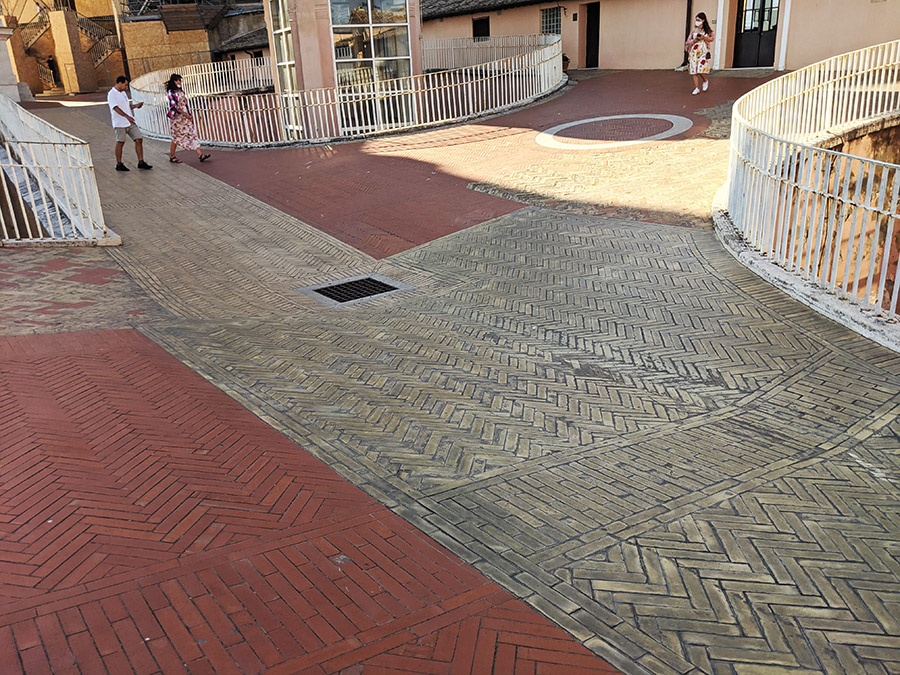
Then we were back inside and following the curve of the dome back down through more impossible stairwells. Just look at this shit.
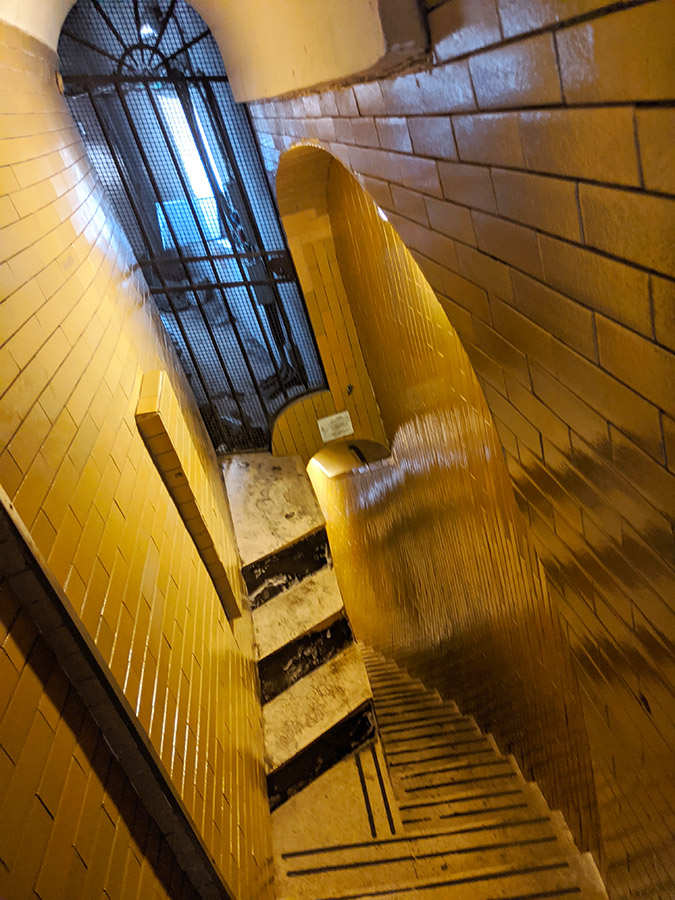
My favorite thing is that that detour of tiny, slick marble steps on the left that goes up to that door, with no handrail or anything to keep you from stepping off and hilariously rolling down the entire dome in a spiral like a giant marble.
I, however, made it down like a man and not a marble, and found myself back in the Basilica. Hey there.
I turned around and took in the glorious basilica one last time.
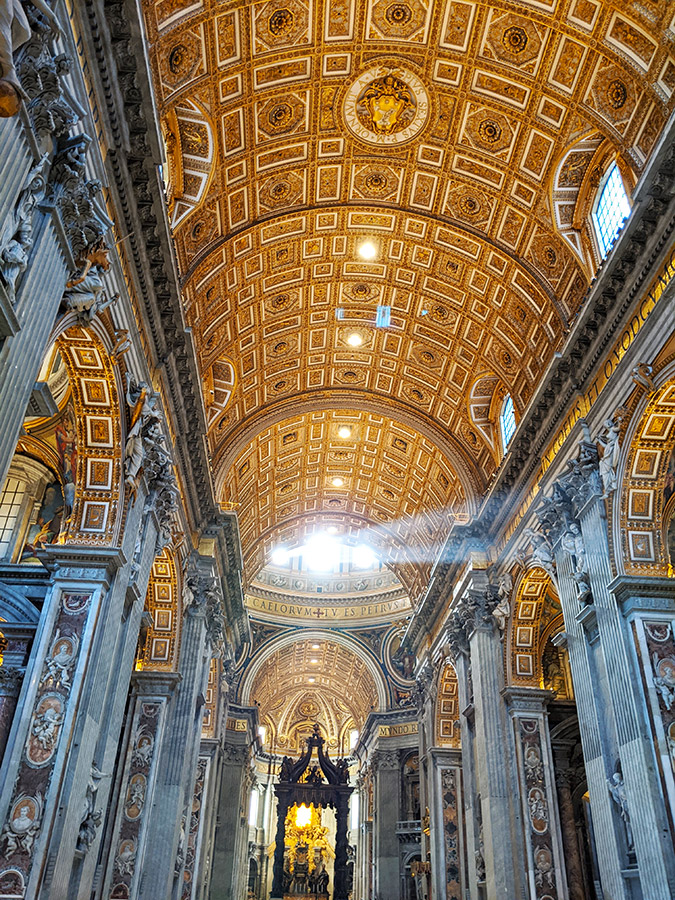
Damn, Catholic Church. I think you contradict your very reason for being by keeping people more distant from God, and I don’t think there will be a place for you in the better world that’s coming in the future, but you sure knew how to ritz the fuck out of a building.
I’d read a lot of terror-stricken warnings online about The Vatican Museums and how if you wanted any hope of seeing more than one percent of these massive museums, you’d better show up before dawn and wait out front until they opened, so you could beat the insane crowds that would clog every inch of these buildings like hair in a shower drain and ruin your chances of seeing the Sistine Chapel and also ruin your entire life. An equal number of online sages opined loudly that only assholes show up at the Vatican Museums before they open, because that’s when everybody shows up and when crowds are at their worst. Your only hope in your wretched little life was to wait and come in the afternoon, when the ravenous throngs of Chinese tourists would be exhausted from selfie-ing and the museums would then be magically empty.
This all was, of course, no help at all. But entertaining to read. My favorite thing was reading people post perfectly reasonable questions about how long you needed to factor in to see the museums (A day? A half-day?), only to be answered by the omnipresent travel snobs who declared that it was only worth going if you could devote three solid months to the enterprise, sleeping nightly in a cubbyhole beneath the stairs so you could devote every waking moment to the unbelievable amount of important art in these buildings. Anything less and you might as well stay home. Thanks guys. This is why nobody travels.
I don’t even remember what time I went, I think I booked a slot in the morning, but not like “Holy shit it’s morning already?” early or anything. And it was fine. Probably because half the world was in lockdown.
The one thing people online seemed to agree about was that if you were in any way limited on time, you should make a bee-line for the Sistine Chapel, because it takes an hour and a half just to walk there from the front entrance to the museums, and you didn’t want to run out of time and not get to see the chapel, if that was a must-see for you. I wasn’t that limited for time, but I knew I wanted to see the chapel and wasn’t sure what was even in the museums so I decided to just hook and boogie straight for the chapel to be on the safe side.
This took approximately ten minutes. The place isn’t THAT big. I get that it’s probably usually more crowded than what I experienced and thus slower to walk through, but I’m also generally becoming convinced that people who give advice online have no idea what they’re talking about.
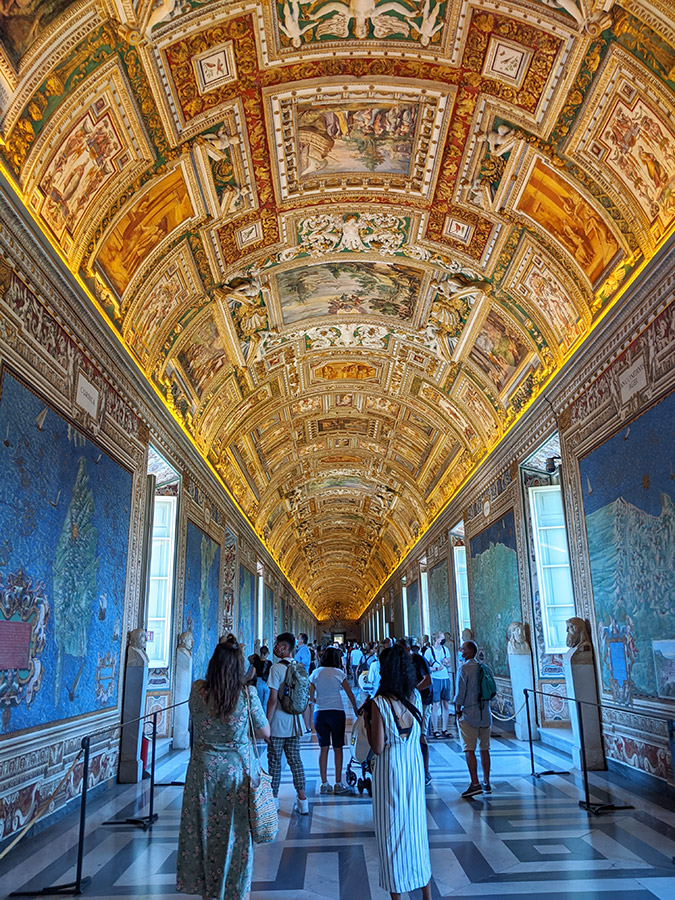
The worst thing about the Sistine Chapel, from a blogging perspective, is that you’re not allowed to take photos inside. And they’re real strict about this. I think the general idea is that this is an actual chapel, a place of worship, so you should be in there praying or contemplating your sins or whatever and not beefing up your Instagram feed.
However, this is also a big room stacked to the rafters with some of the greatest art ever created in human history, and telling people they can’t take any pictures of any of it was, I thought, kinda dumb. As for it being a place of worship, that’s nice but nobody was there for that. And I think it actually would have made for a better worship experience if you just let people take photos instead of having guys running around constantly telling people not to take photos and making announcements over the loudspeakers every twenty seconds saying that you’re not allowed to take photos in here.
On the positive side, not being able to take photos made for a nice experience of being in the moment and really, really looking at the art, knowing you wouldn’t be able to just review your photos later. I spent a long time taking in every aspect of the famous ceiling.
As for what the chapel was like compared to my expectations, for one it was much larger than I was expecting. And it’s basically shaped like a high-school gym, a big rectangle with a curved ceiling. There’s a small altar at one end and a wooden divider in the middle of the room. Basically it’s just a big empty room where all of the surfaces have been painted by famous dudes.
At one end of the room is a huge painting of The Last Judgment by Michelangelo, with Christ in the middle, the righteous rising from the dead and ascending up into heaven, and the not-so-righteous headed the opposite way. The side walls are covered in paintings by Boticelli, Ghirlandaio, Perugino and tapestries by Raphael, all of them depicting Biblical scenes from a Catholic perspective. But the star of the show is, of course, the ceiling.
The ceiling depicts events from the Book of Genesis, the most famous being The Creation of Adam, a.k.a. the one where God reaches out and touches a naked dude like he’s E.T. My favorite of these panels was God Creates the Sun and Planets, which shows God’s naked ass as he’s flying away. I don’t know why God’s wearing a shirt but no pants, like he’s Porky Pig. Maybe God just got up and he likes to get right down to shit.
The thing that was most striking about the Sistine Chapel ceiling to me was the sense of depth. Many of the painted figures have an incredible sense of depth and three-dimensionality to them. The figures of the prophets painted around the corners of the ceiling looked like they were going to reach down into the room at any moment. No doubt some credit goes to the people who have restored the ceiling over the years, to allow the vibrancy of the original artwork to shine through.
All of this plays into the fact that the ceiling itself is vaulted, with the spandrels and pendatives that are holding up the domed ceiling crossing over and intersecting with the artwork on the ceiling. This adds an element of actual physical depth to the ceiling, which interplays with the illusory depth of the painted figures. But as if that wasn’t enough, there are also fake architectural features painted onto the ceiling as well, dividing the artwork and just making the entire thing into an absolutely crazy optical illusion. Standing on the ground, it is very difficult to tell which of the lines and arches on the ceiling are physically there, holding up the ceiling, and which are painted on. Whether this was the intended reason or not, it creates a brilliant effect that makes the entire painting seem more real, because your brain knows something up there is real, but it can’t tell for sure what.
The combination of this boggling scene and the fact that you’re standing and looking straight up over your head for a long period of time, the blood in your brain flowing to unusual places, makes the whole experience even more surreal. I took in the ceiling for quite a long time, and by the end I felt like I was swimming around amidst this swirl of biblical fantasy myself.
Dazed, I wandered out to take in the rest of the museums.
And quickly discovered that the museums are not at all set up for you to do this. It’s basically a one-way loop, you’re supposed to finish in the Sistine Chapel and then GTFO. A security guard caught me trying to go back the way I came and explained that I couldn’t do that. After I asked him to explain how I could get back to the entrance without buying a second admission ticket he realized that was stupid and escourted me to a hidden underground passageway that dumped me out back at the beginning.
The museums start off with a fairly large Egyptian area.
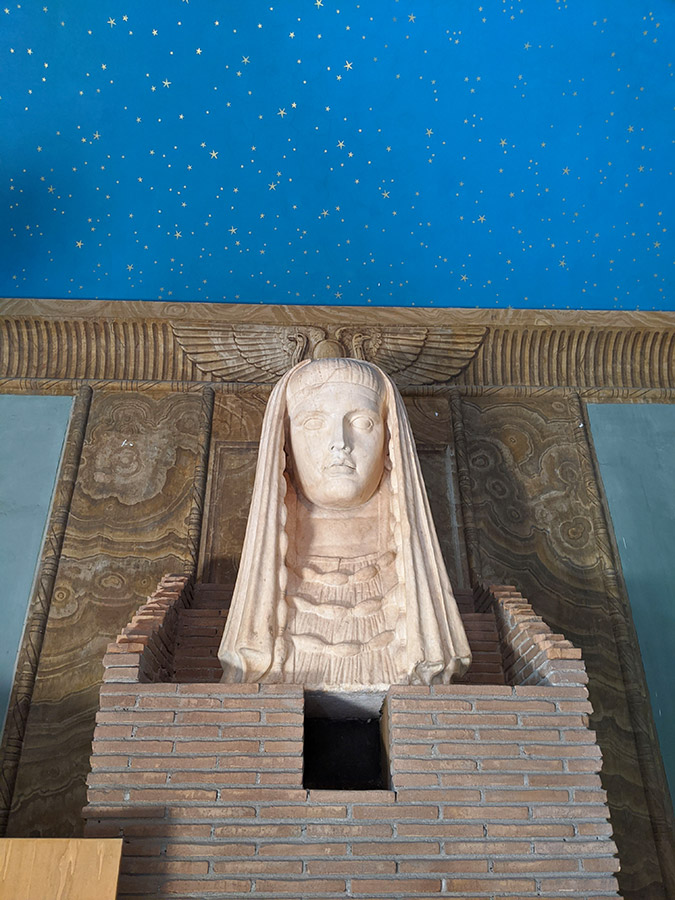
What impressed me the most was the large collection of very good Sekhmet statues, a real area of interest for me after my experiences in Egypt.
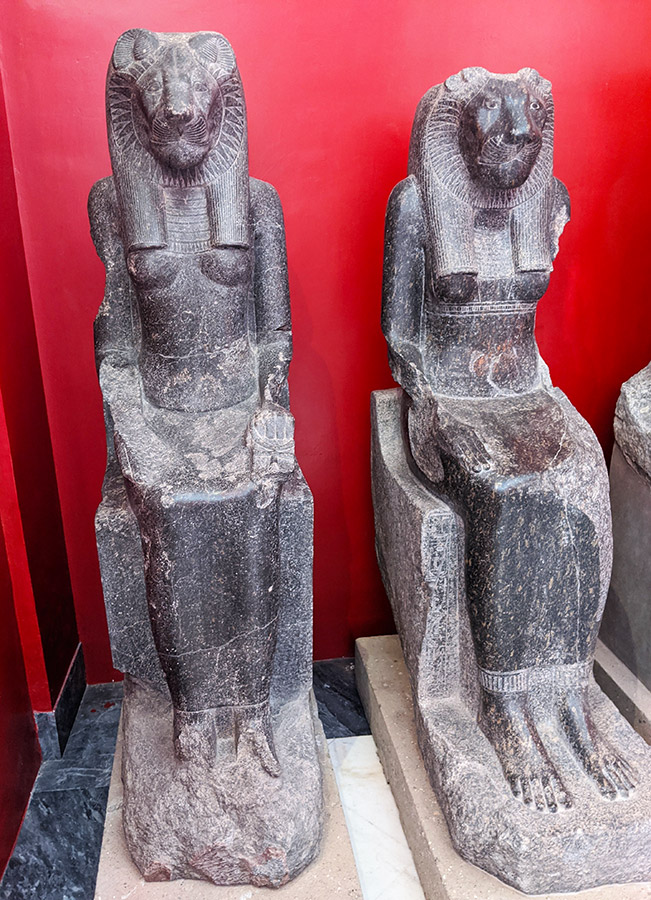
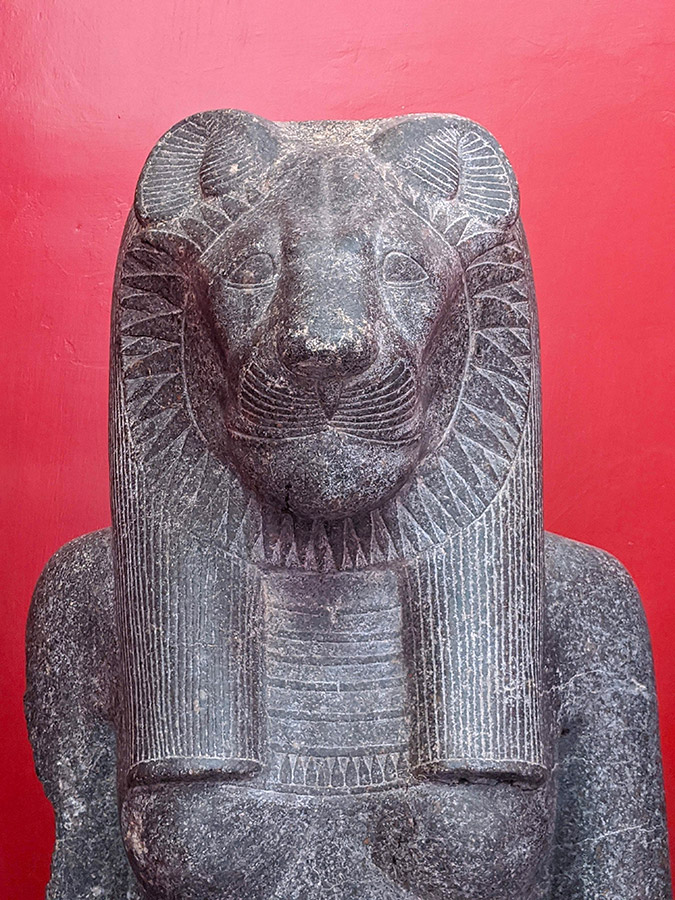
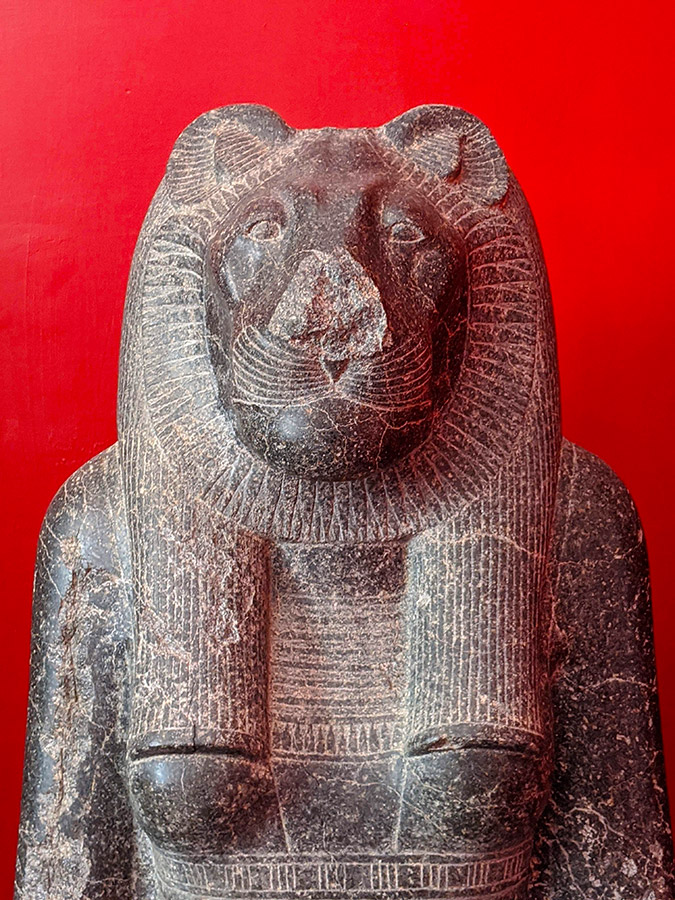
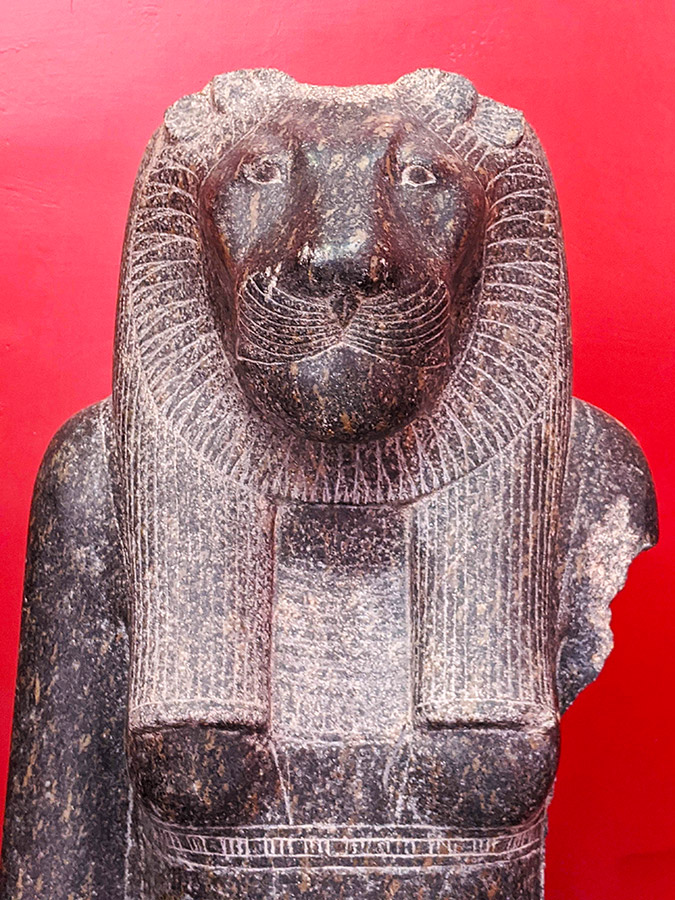
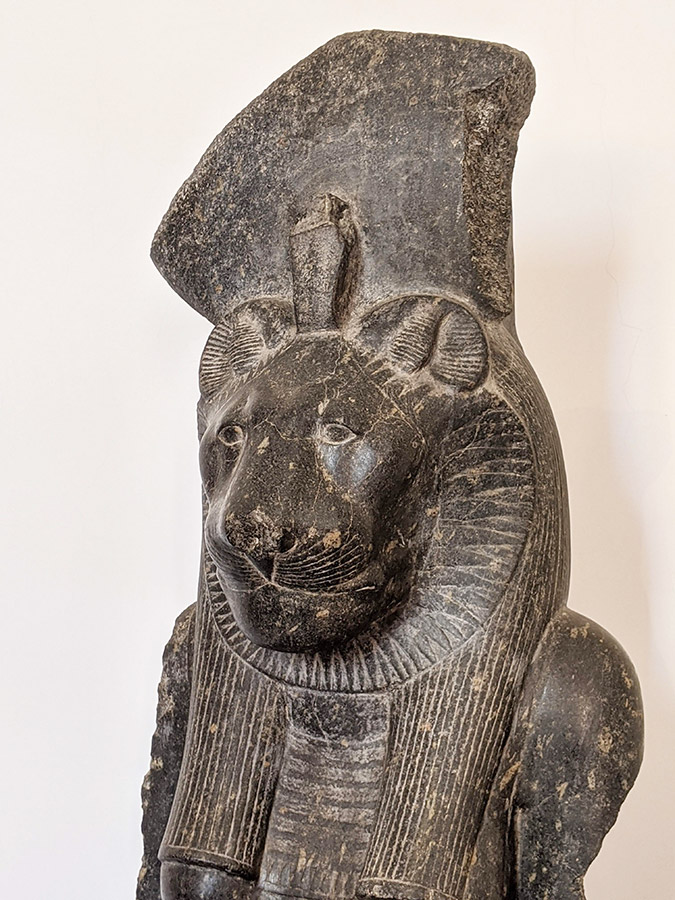
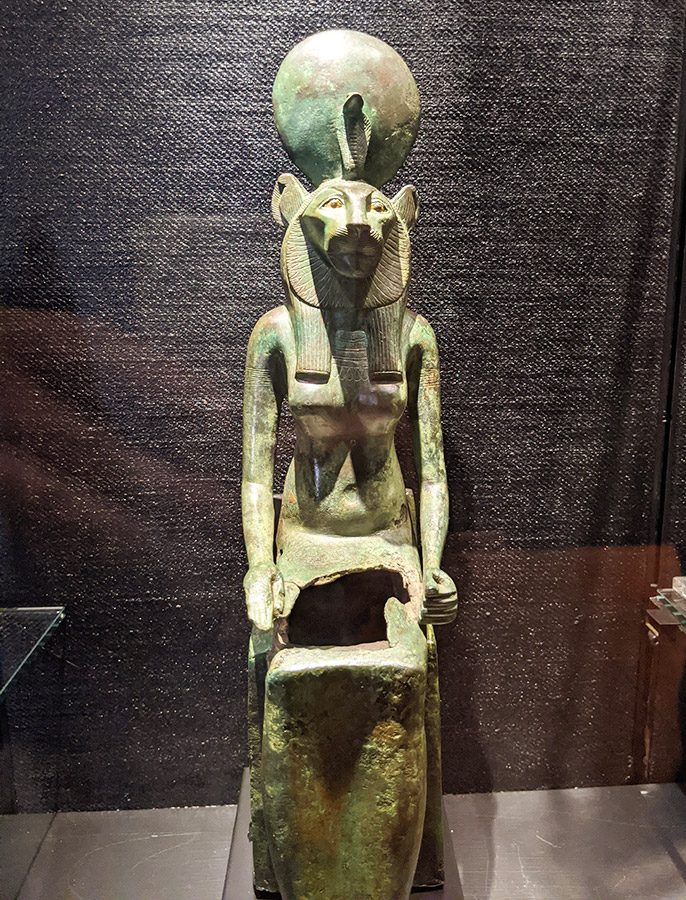
I could feel the energy and presence of Sekhmet herself from many of these.
I wandered through the other foreign exhibits and outside through a small garden that connected two different buildings.
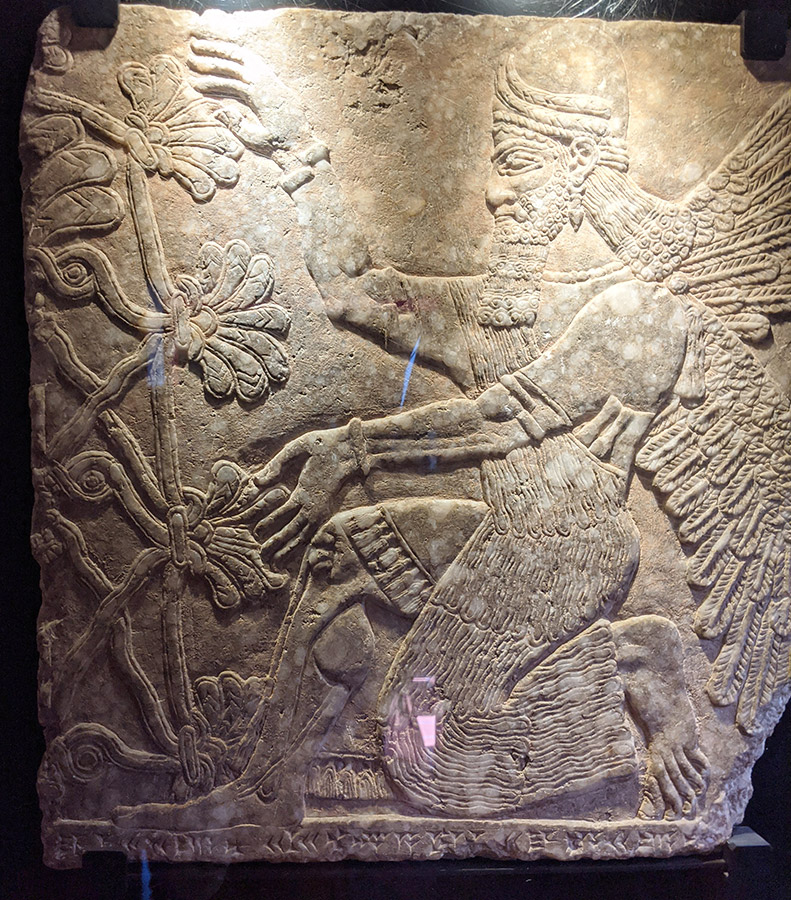
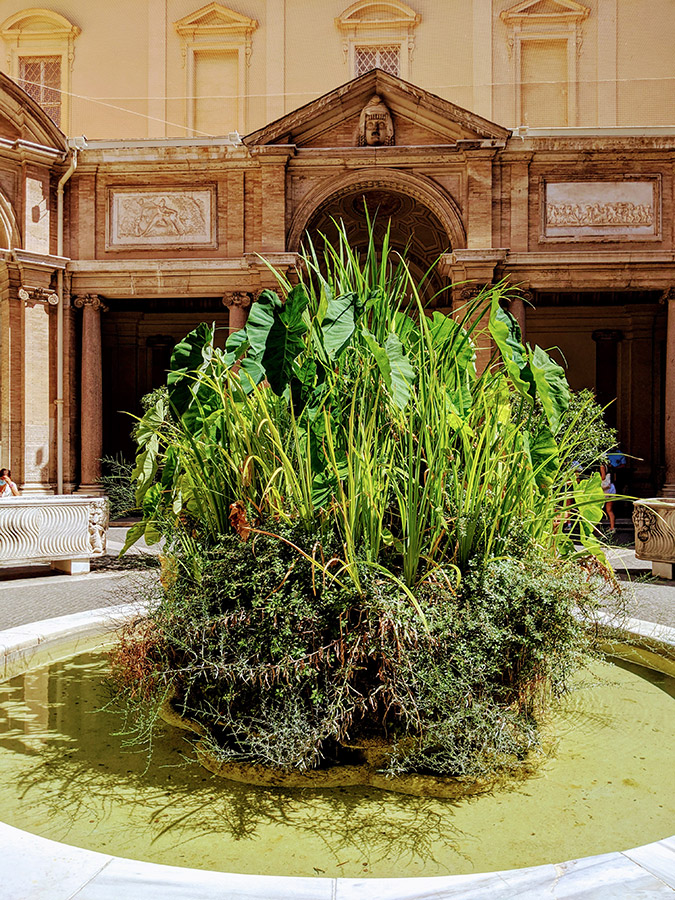
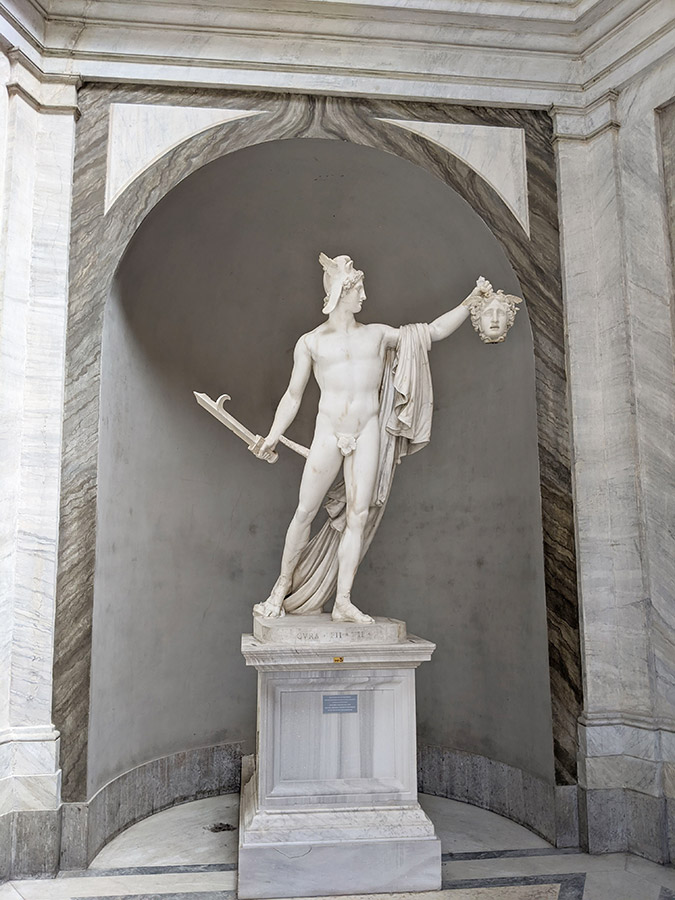
The buildings of the Vatican Museums are just crazy beautiful on the inside.
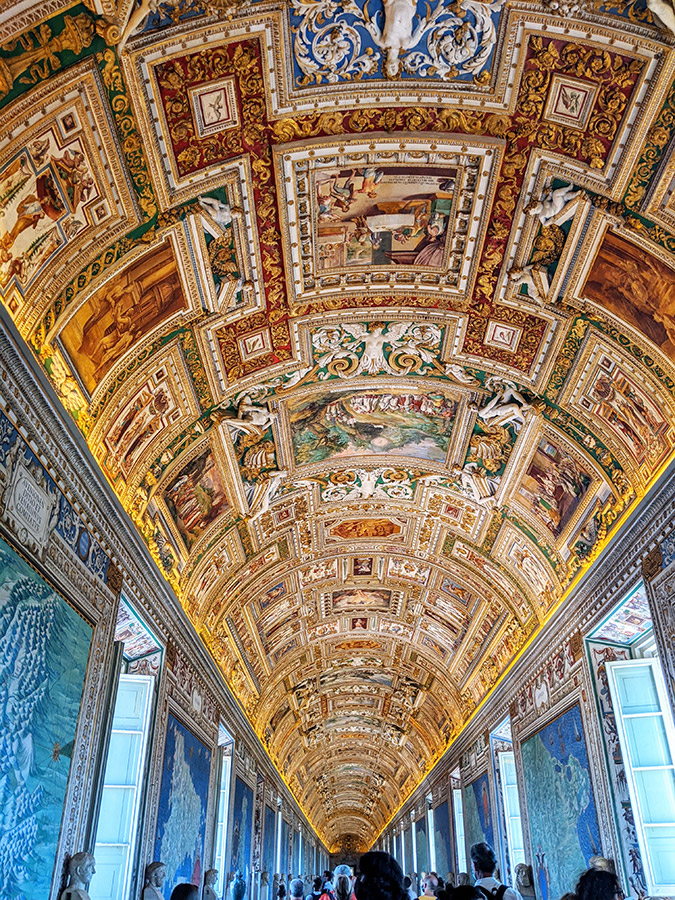
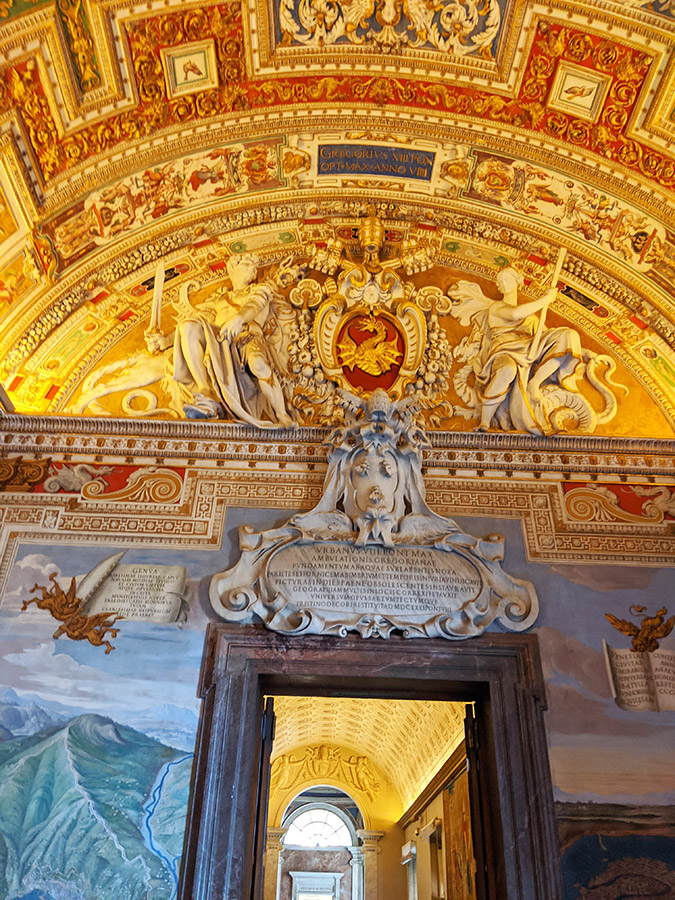
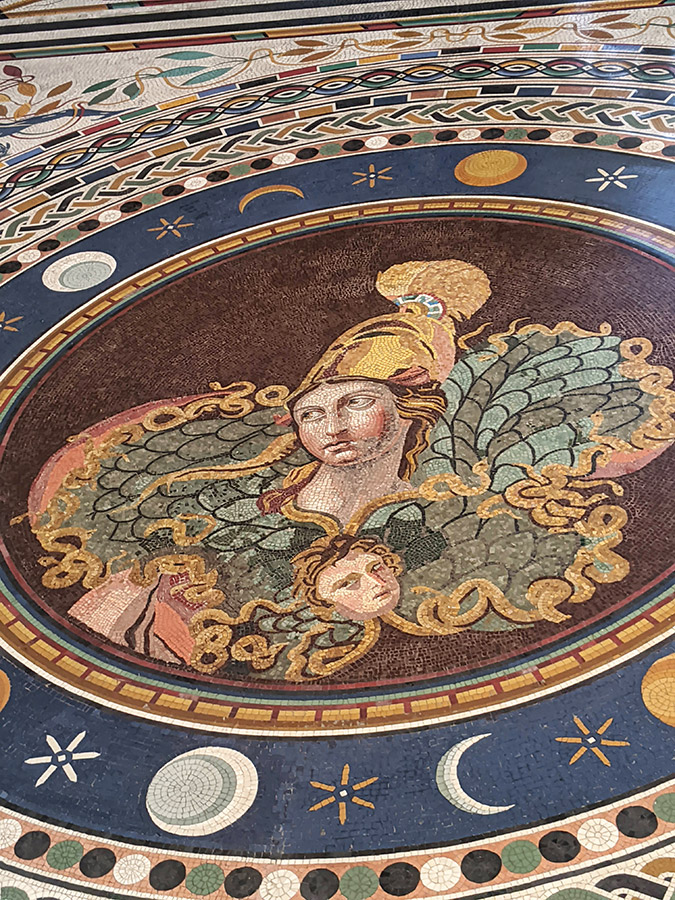
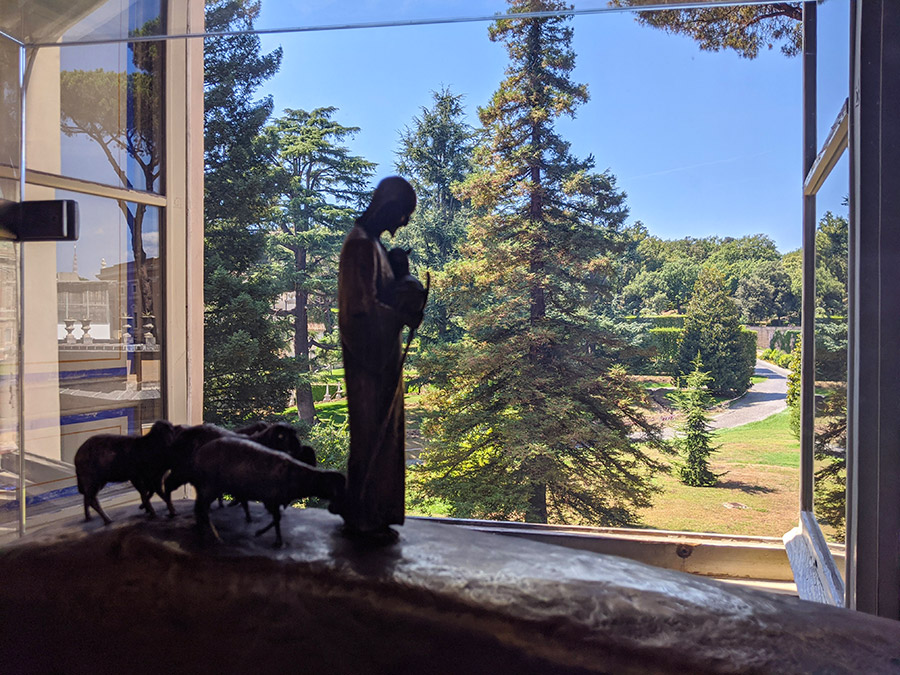
Art is interspersed in galleries throughout, like the classic Naked Chuck Norris Rescues Santa Claus.
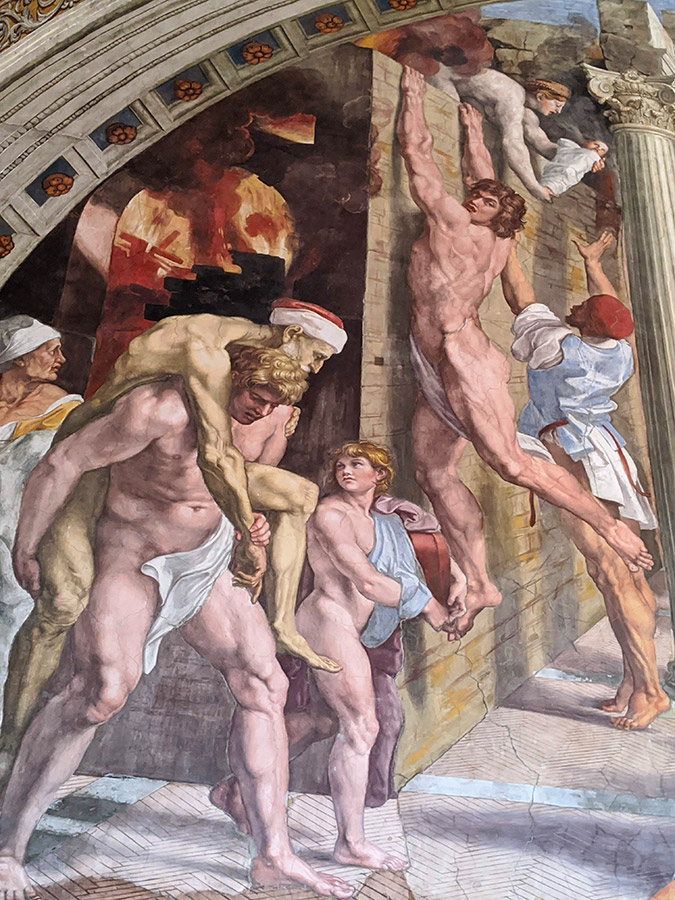
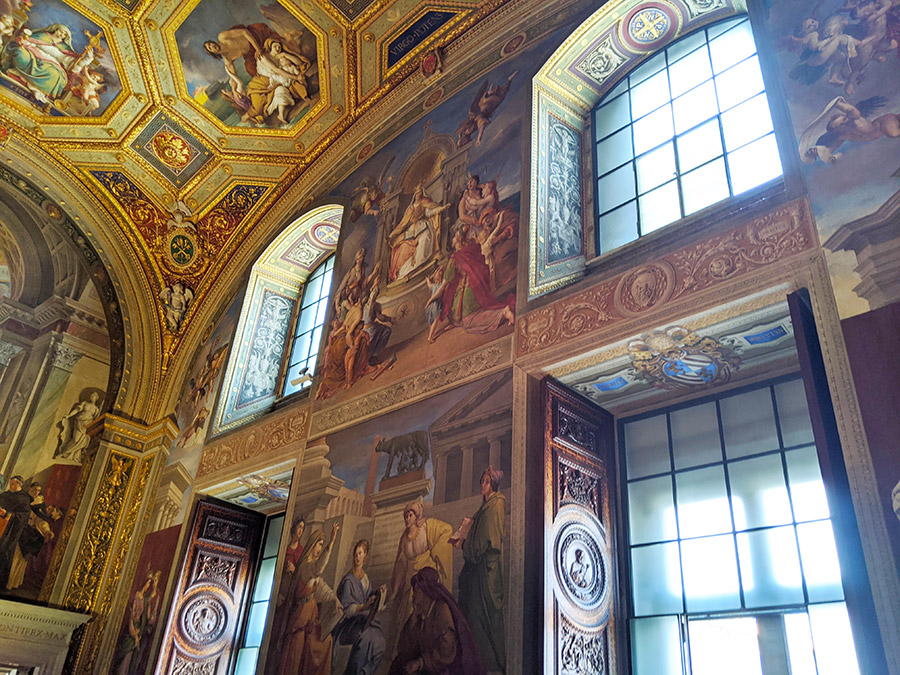
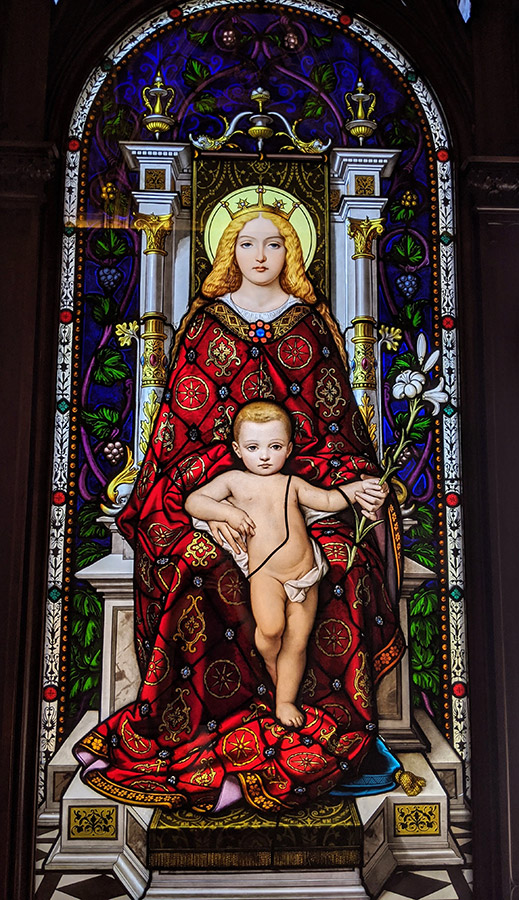
Occasionally an open window lets you peek outside to see the greenery of the Vatican Gardens across the way.
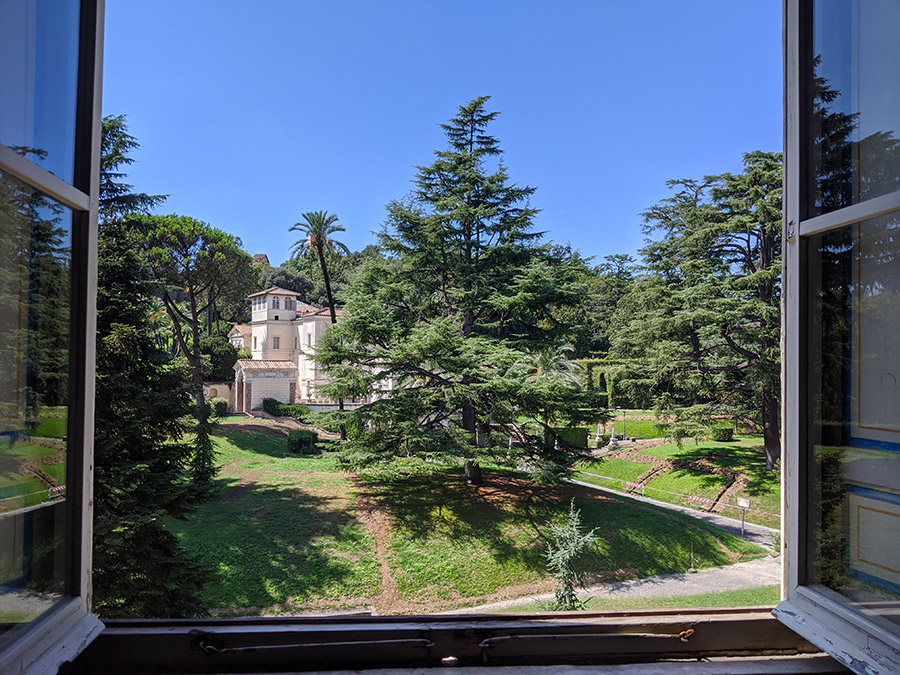
One of my favorite paintings inside was Blessed Michelina of Pesaro, a beatified Italian woman from the 1300s who devoted herself to the poor after having a vision of her dead son. She had a lot of character and looked like she’d seen some shit.
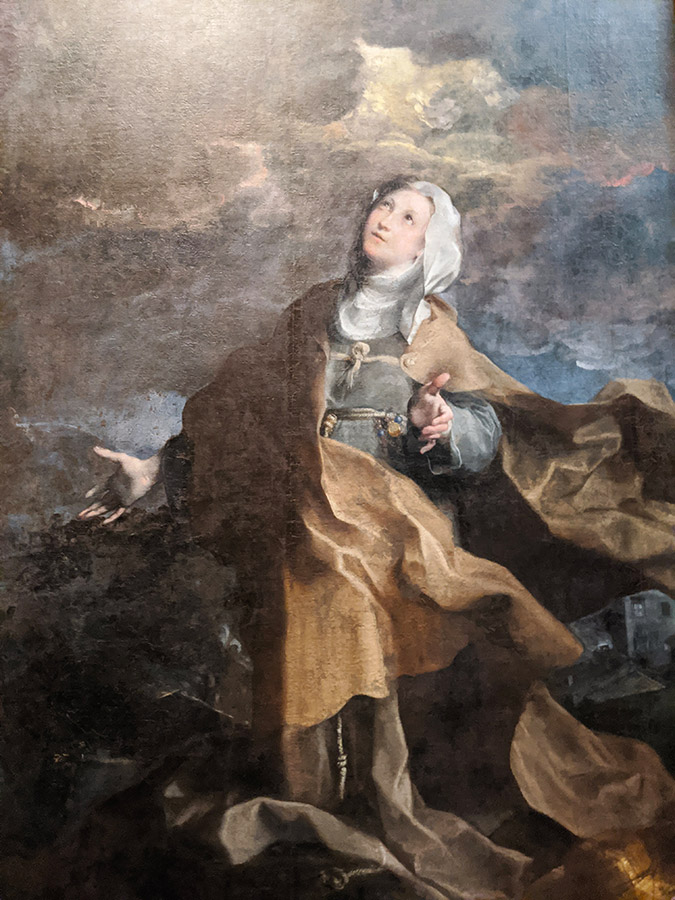
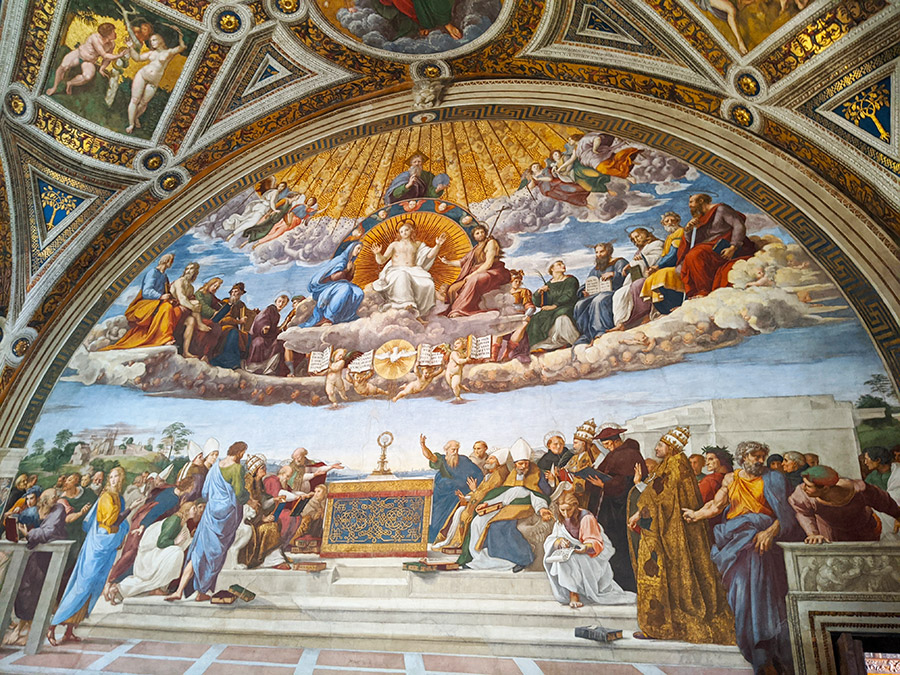
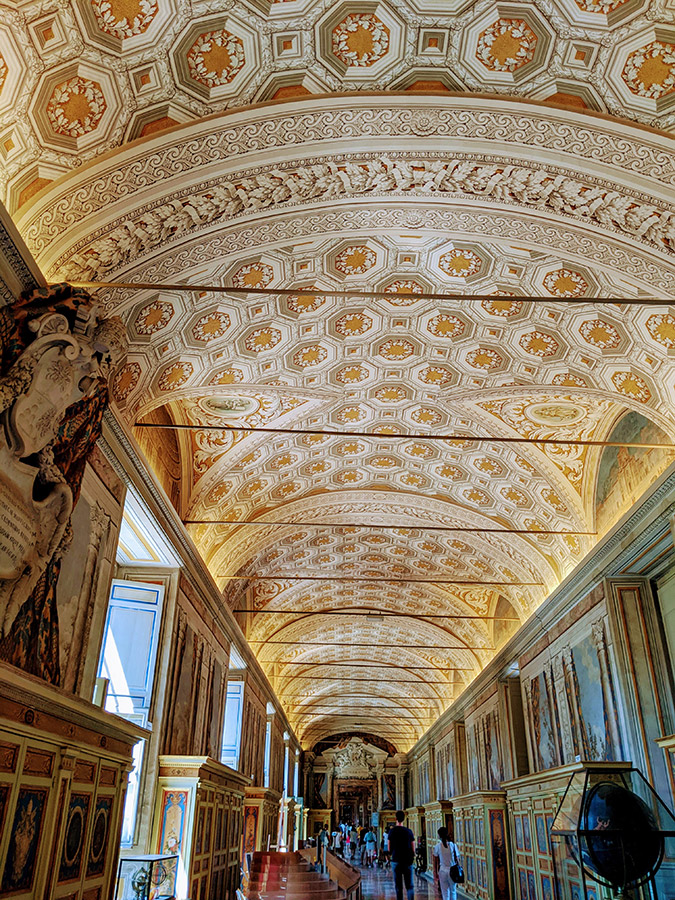
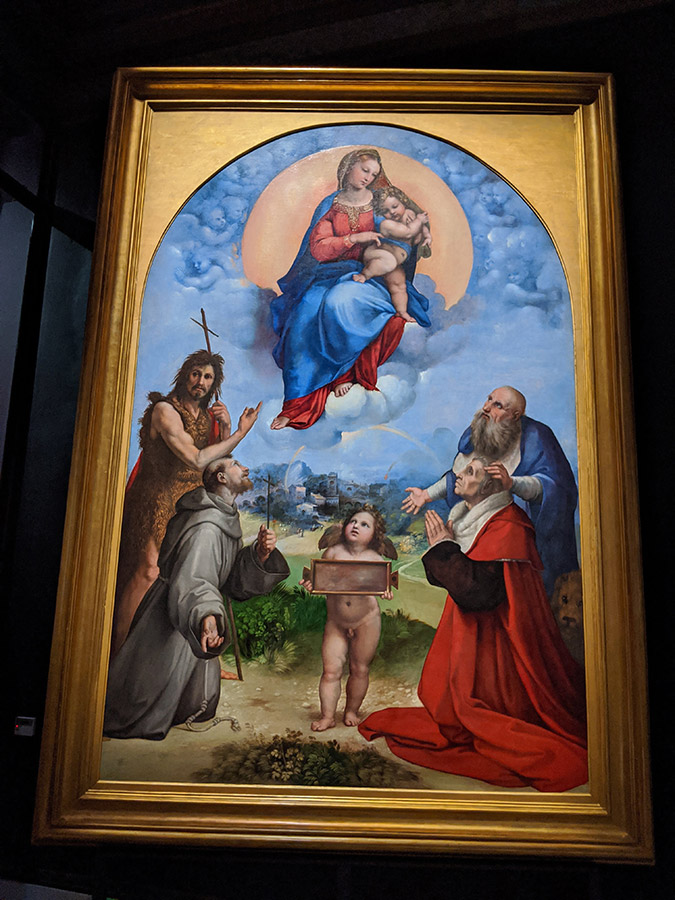
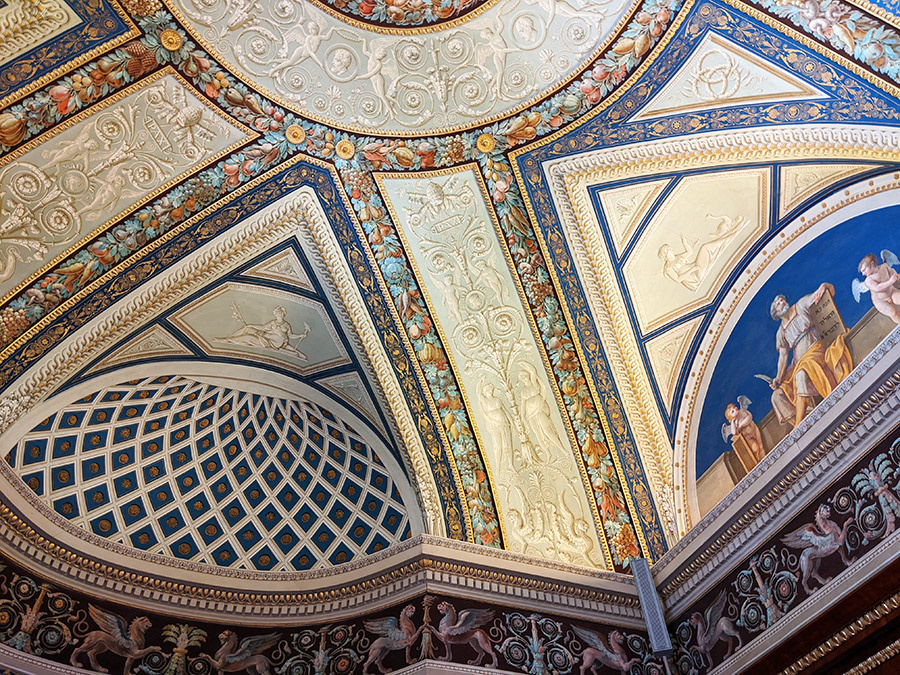
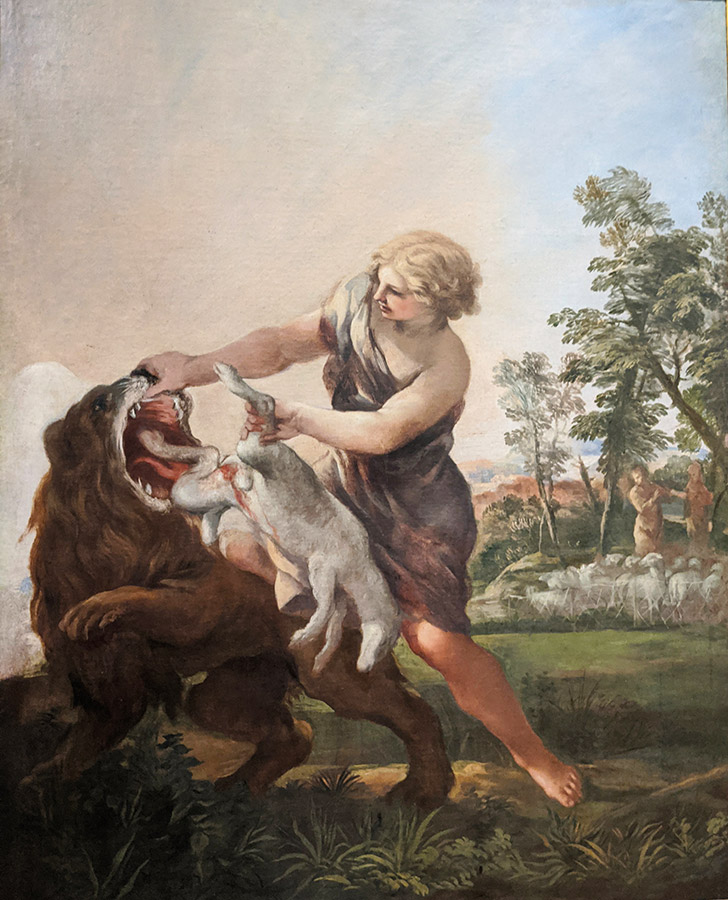
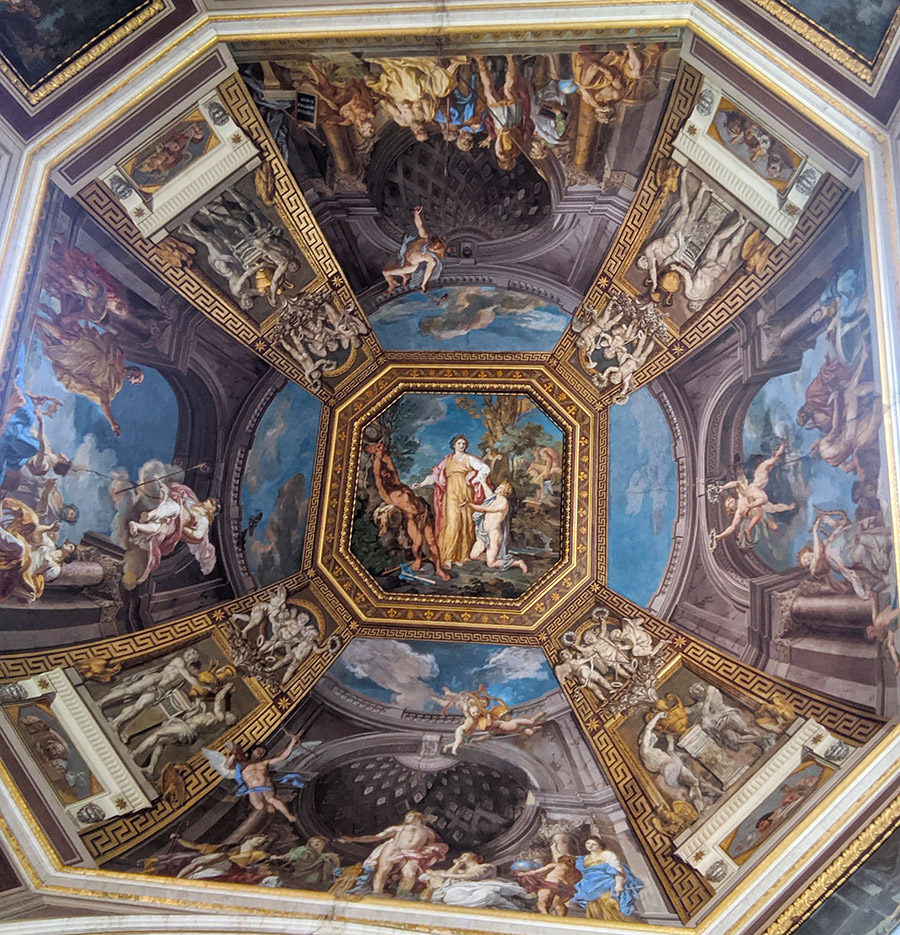
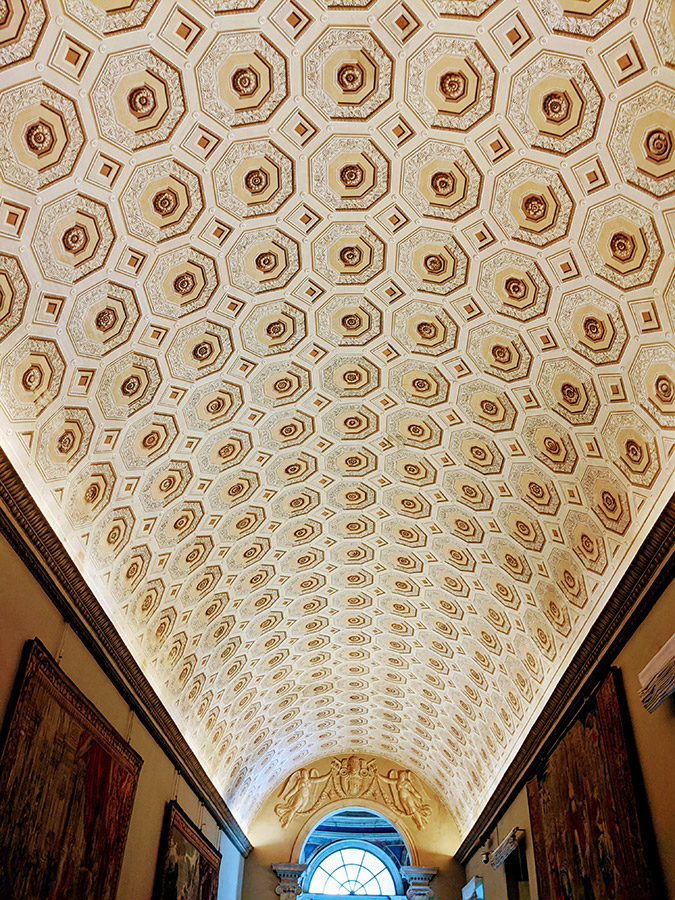
My absolute favorite though was Raphael’s final painting, Transfiguration. I’m generally not a huge fan of Jesus paintings but this one has a special, otherworldly quality to it and has a lot of presence.
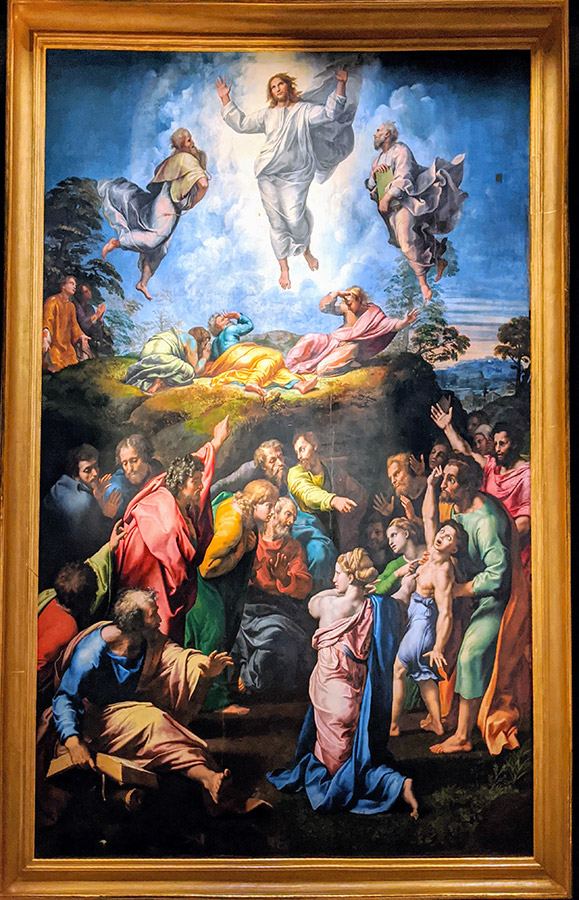
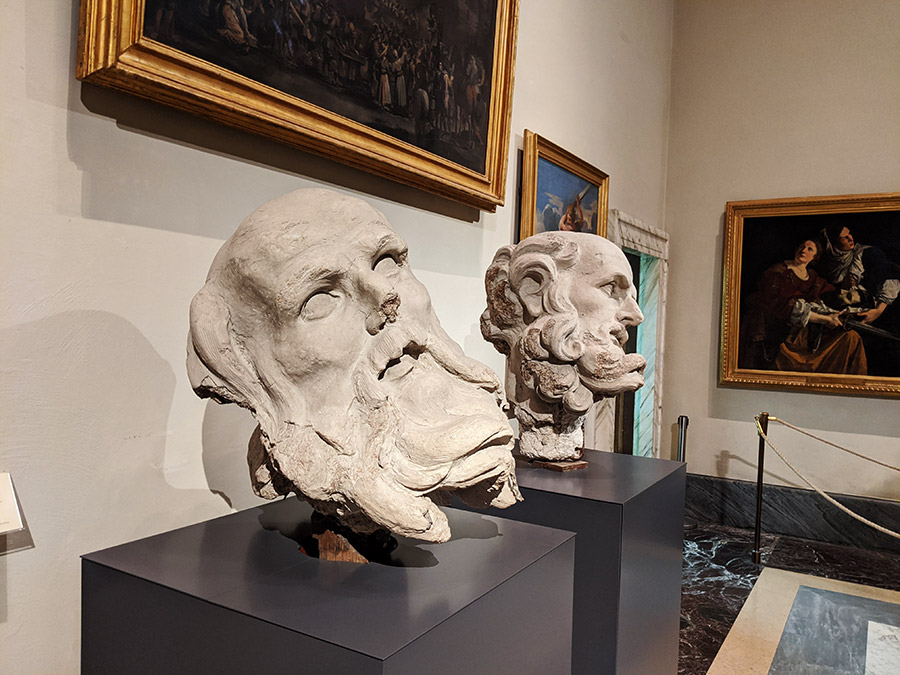
While I was in Italy I had fallen in love with Sandro Botticelli’s paintings, and I suddenly realized I’d been so tripped out by the ceiling that I forgot to look at his panels in the Sistine Chapel. I made a bee-line back to the chapel.
This took me back through rooms that had been the pope’s quarters during the era of the Borgias. I passed a pope statue… yeah, that looks like a holy figure who’s in constant communion with God, not some scheming alien, sure. Jeez, this is the Vatican, they’re probably eating babies in the basement right now.
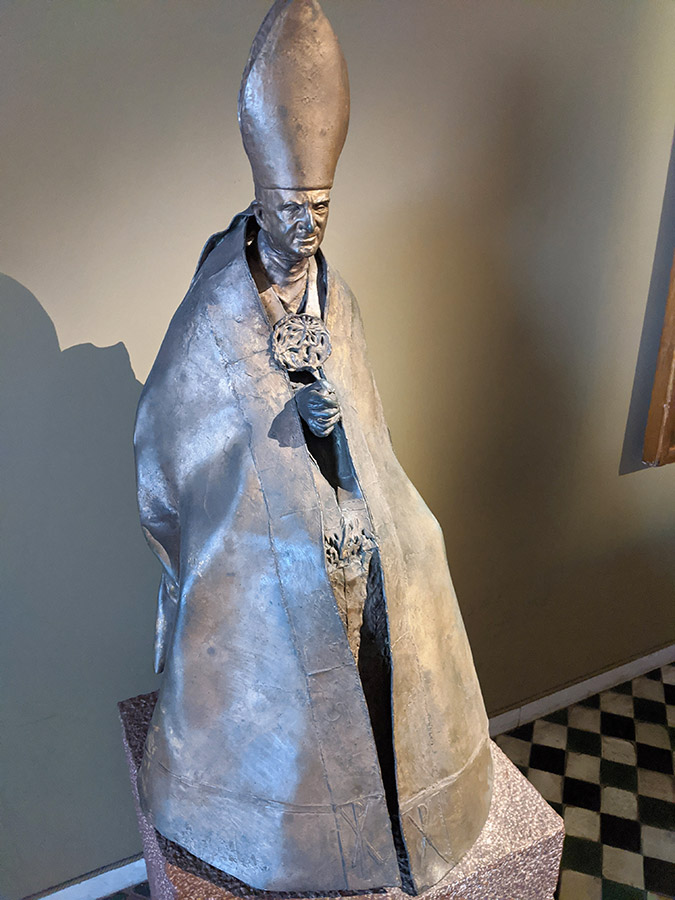
The chapel was a little busier than when I’d been inside before, and some hapless priest was trying to lead some kind of ceremony from a raised platform while the assembled crowd was trying to sneak photos of the ceiling. I made my way around the room and took in Botticelli’s three wall panels, Events in the Life of Moses, The Temptation of Christ and The Punishment of Korah. The third was the most interesting, as it depicted the pissed-off Hebrews trying to stone Moses. Guys, guys, guys. That never works out. These were cool to see, though I definitely preferred Botticelli’s mythological works.
I was taking in The Punishment of Korah when one of the museum employees interrupted me and said “Please don’t take any more photos.” Huh? I’m not- Ha! I realized that while lost in thought while looking at the painting, I had, 100% on reflex action, taken my phone out and had it out in front of me, pointed at the painting and ready to take a photo. I hadn’t even realized I’d done it, and hadn’t taken a picture. I was kind of touched that the guy was so nice about it, as I’d seen them not be so nice to other people. I was also kind of bummed I hadn’t taken a picture if I was going to get warned about it.
Taking the proper path out this time took me into a little green area outside.
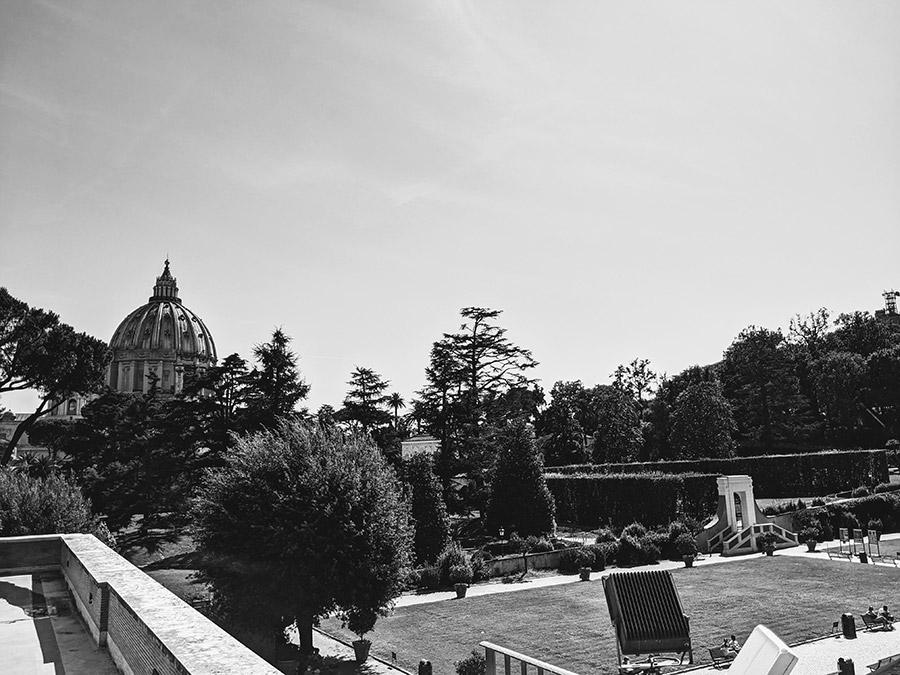
I wandered into the last museum building I hadn’t checked out, which had a really thrown-together collection of artifacts from the South Pacific.
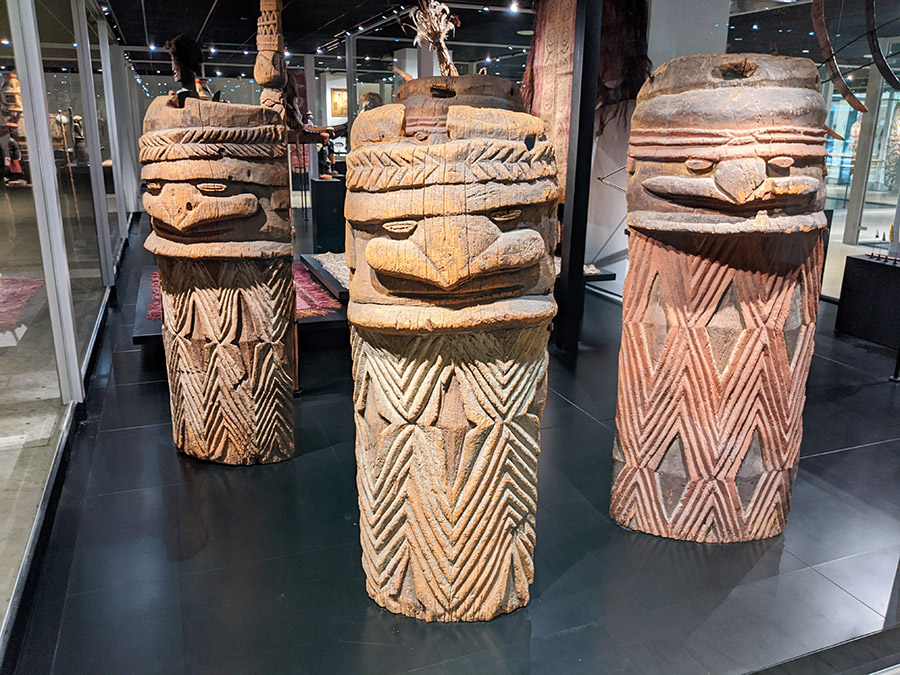
Oh cool, they have one of the starving man figurines from Easter Island.
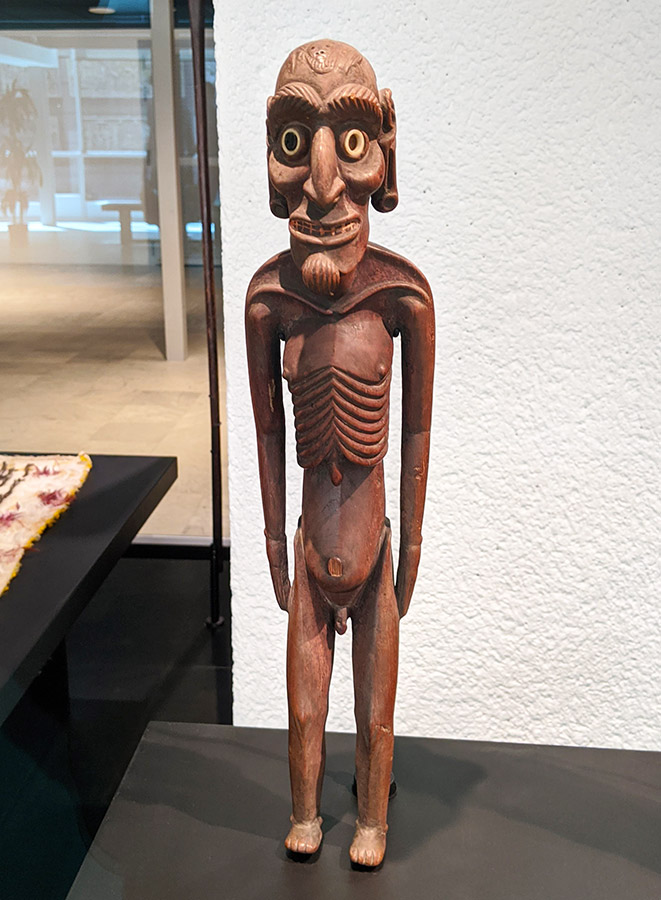
OK. So these museums aren’t that big. Online people are crazy. I made my way down the museum’s iconic spiral staircase and out into the city.
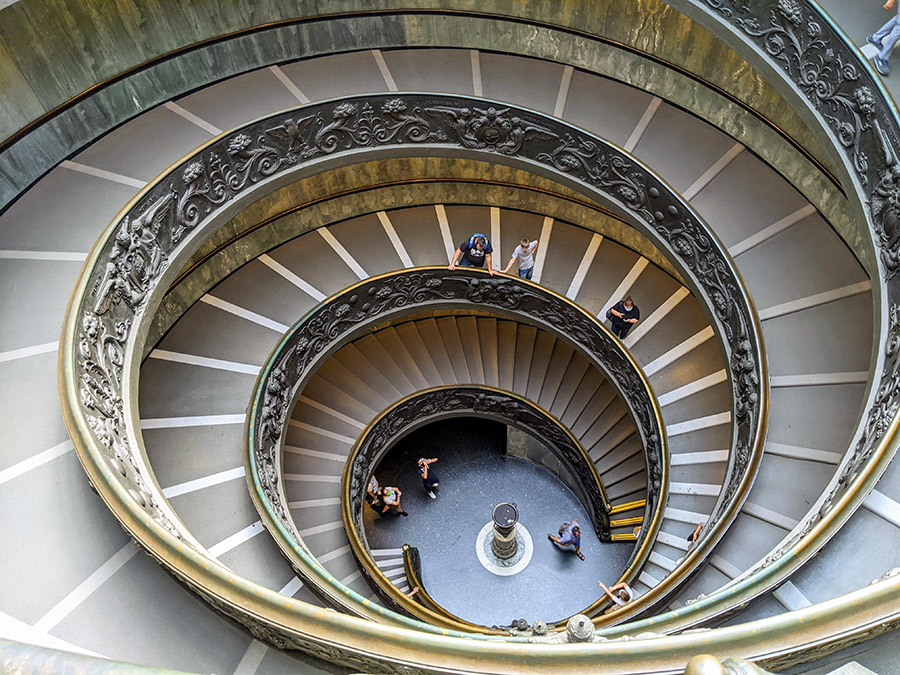
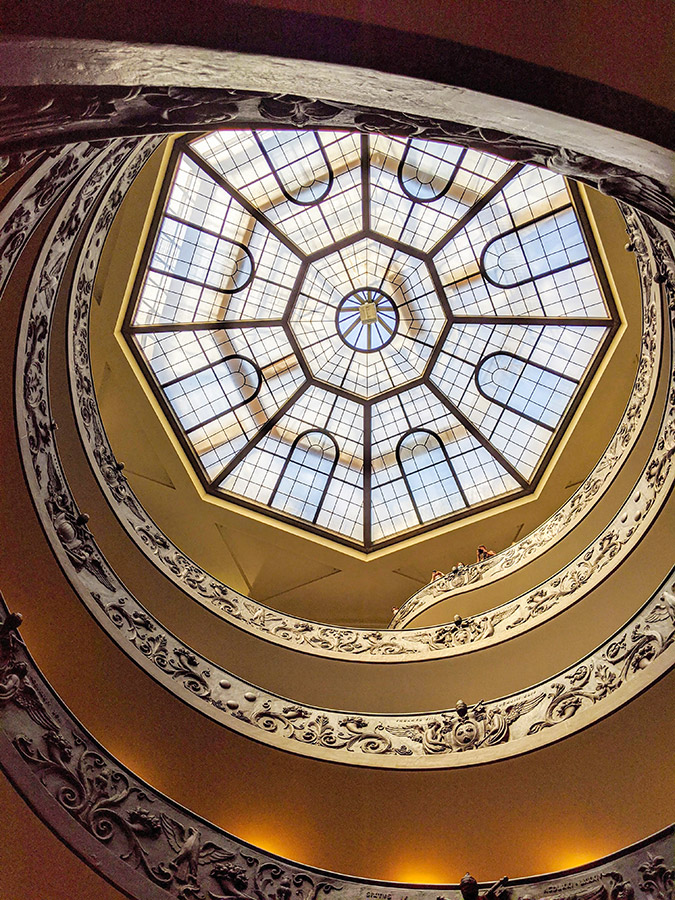
Outside, the noble Swiss Guard kept a watchful eye over a bunch of tired tourists as the sun began to gently set.
